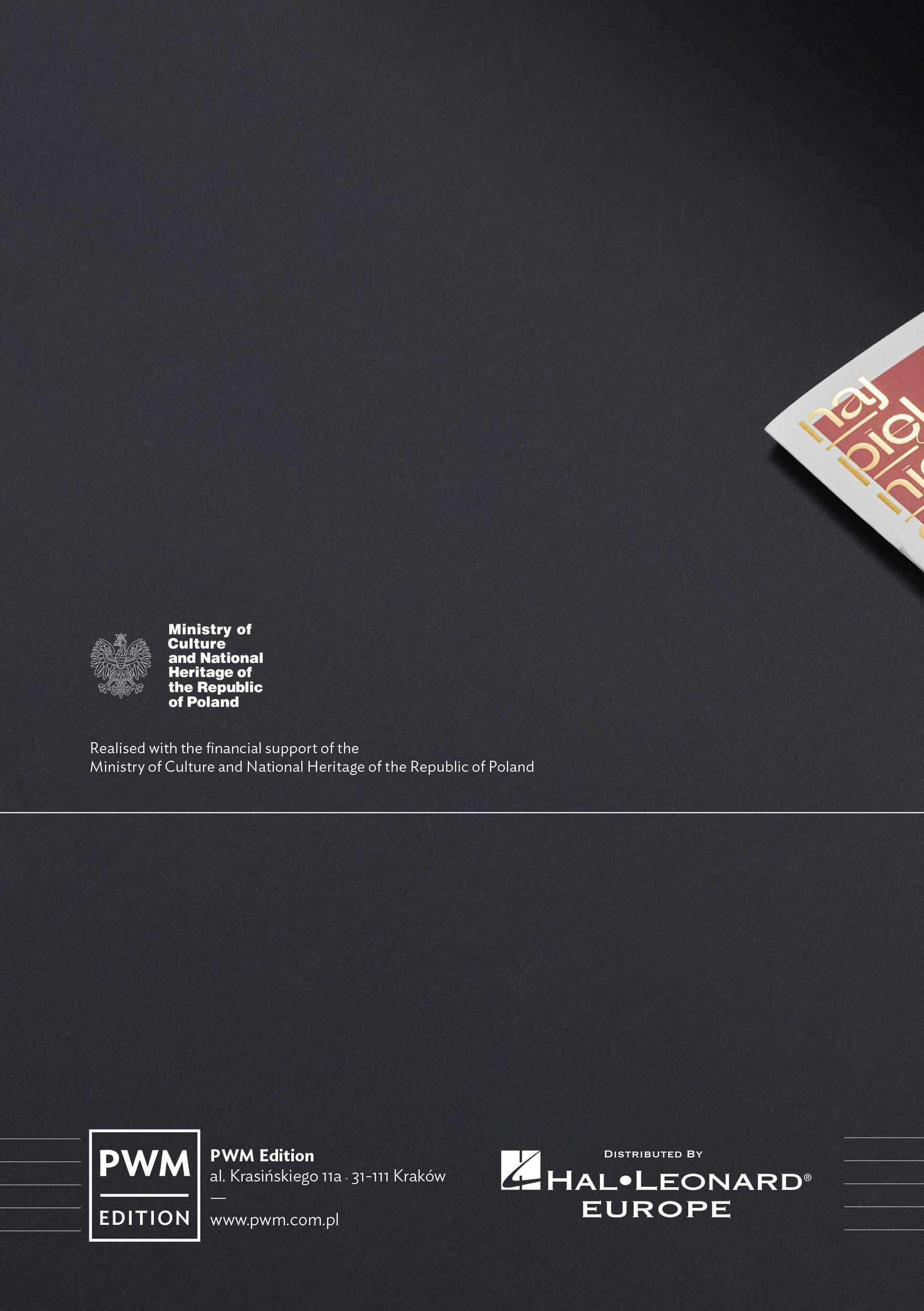


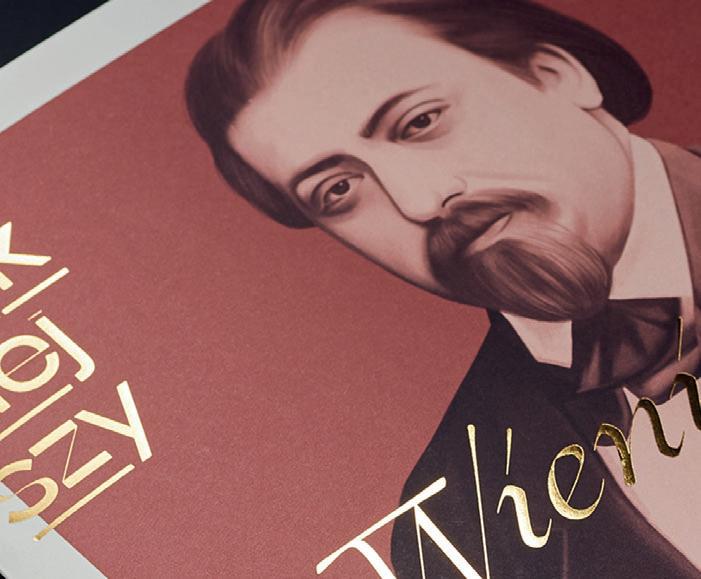
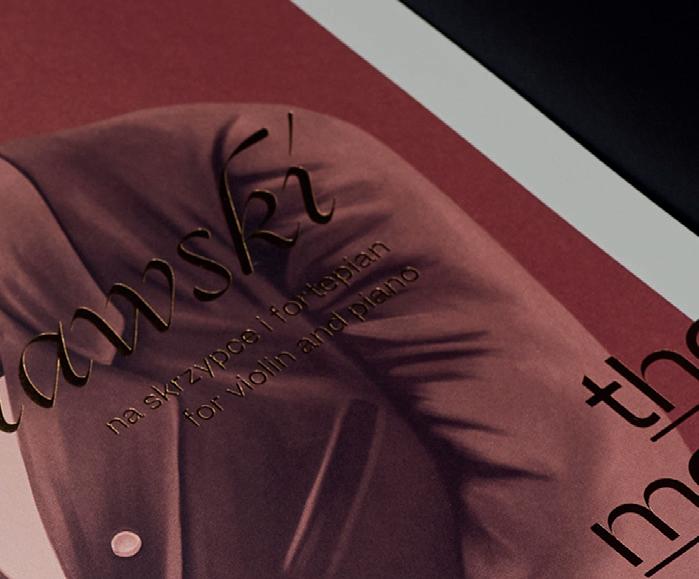
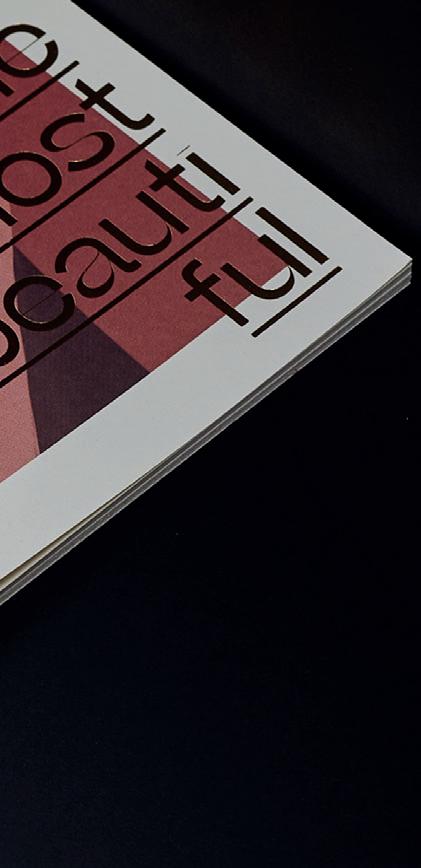
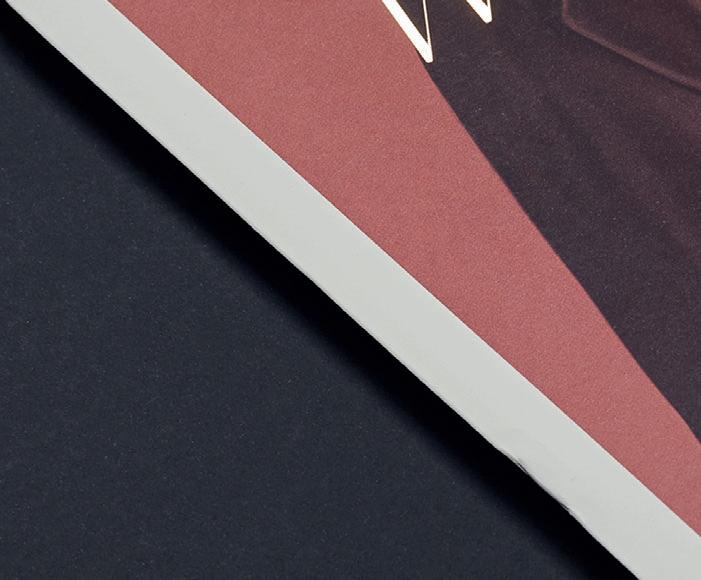


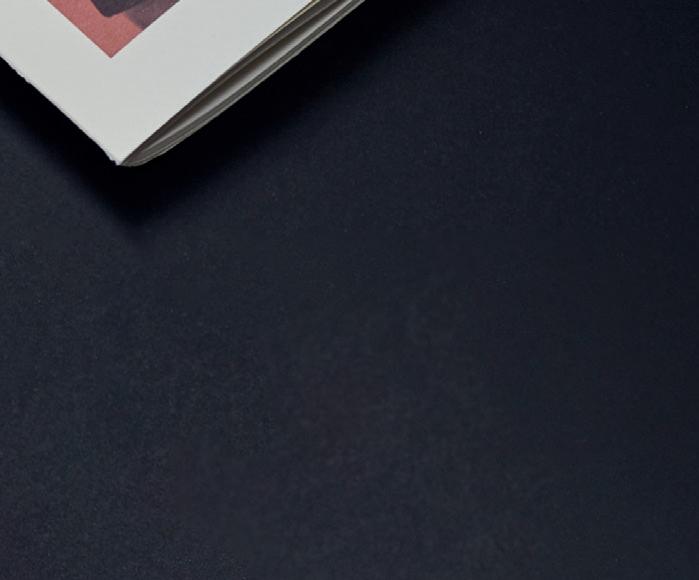


NEW ISSUES 2019–2022
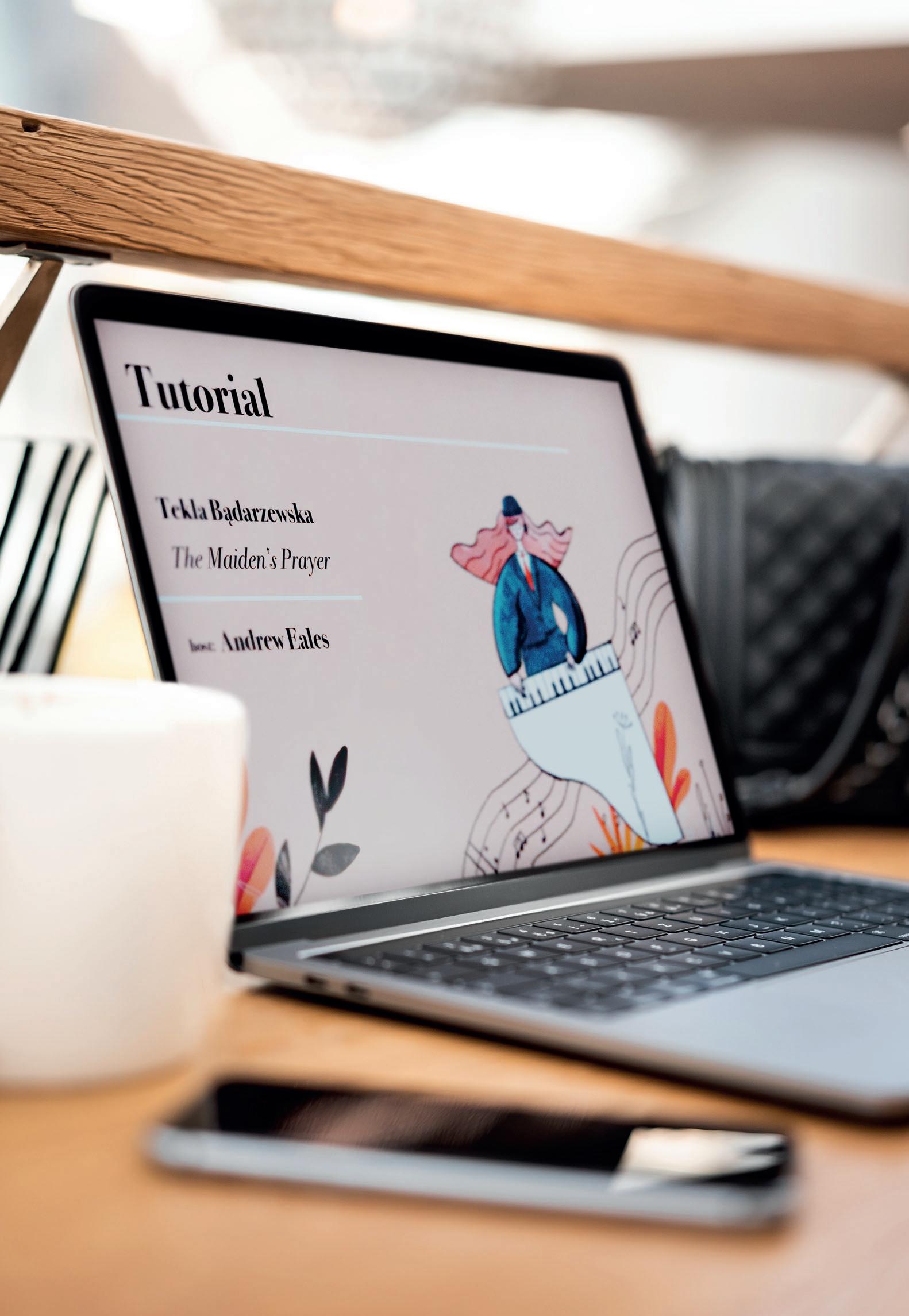
ACCORDION 12
Keyboard
5
instruments
PIANO 5
HARPSICHORD 12 String instruments 13 VIOLIN 13 VIOLA 18 CELLO 19 DOUBLE BASS 20 Wind instruments 21 FLUTE 21 CLARINET 22 OBOE 23 SAXOPHONE 23 TRUMPET 23 TUBAX 24 Plucked instruments 24 GUITAR 24 Percussion instruments 25 CARILLON 25 Chamber music 26 Vocal-instrumental music 31 Choral music 33 Stage works 36 Books 36 Series “The Most” 38
We present you a catalog of new releases from 2019–2022. It contains educational pieces, pieces by Polish contemporary and 19th-century composers, both for solo instruments and chamber ensembles, as well as vocal-instrumental publications and choral pieces.
The catalog also includes piano pieces that we presented in 2020 in our extensive online international campaign Music from Chopin’s Land addressed to beginner and intermediate pianists and their teachers. We prepared a series of five demonstration classes presenting the educational aspects of the works by selected Polish composers such as I.J. Paderewski, S. Moniuszko, K. Kurpiński, M. Szymanowska, W. Kilar, T. Bądarzewska and many others for each of the partner countries of the project –Italy, France, the United Kingdom, Japan and Germany. The classes are conducted by an excellent teaching pianist in the language of the country in question. All videos cover performance and interpretation, along with proposed technical solutions. In order to enable the active use of all 25 tutorials recorded as part of the project, the videos include translations into
the languages of all partner countries. The demonstration classes are complemented by showcase recordings of performances of the pieces presented in the tutorials, added as a bonus to each of the educational videos.
All the materials of the Music from Chopin’s Land project are published according to the campaign schedule on PWM’s YouTube channel.
We would also like to draw your attention to the source-critical editions of our outstanding composers like K. Szymanowski, M. Karłowicz, S. Moniuszko. H. Wieniawski, I.J. Paderewski, which constitute an important part of our publishing offer. We have prepared a special catalog dedicated to these editions, which can be found on our website at the link provided:
We invite you to familiarize yourself with our rich offer, hoping that you will find a number of interesting items.
Keyboard instruments
PIANO
BACEWICZ GRAŻYNA
BARGIELSKI ZBIGNIEW
Suite for piano
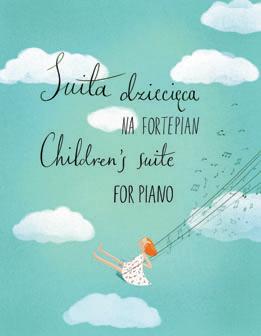
Children’s
PWM 5888
Sonata No. 1 for piano PWM 12897
Thanks to this edition of Sonata No. 1 for piano, composed in 1949, all of the composer’s known works for piano are noe published. The Sonata is a demanding work cast in four movements (Moderato, Andante sostenuto, Scherzo, Finale); it is technically challenging while at the same time requiring nuanced dynamics and sensitive interpretative skills of the performer. The Sonata is rich in the variety of rhythmic, motivic and harmonic elements that undergo development and transformation.
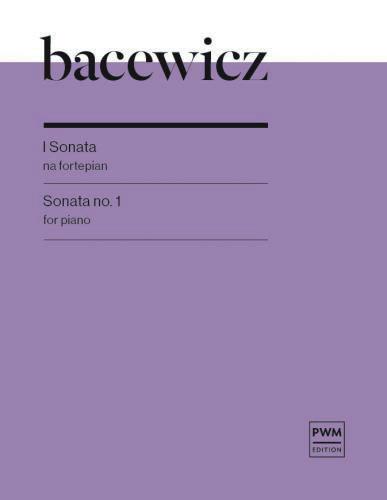
A Flea Market, b. 3, pieces for piano for four hands PWM 12043
Panopticum for piano for four hands PWM 12321
Panopticum is a musical joke of grotesque/ironic character. The work is based on 16 fragments or motifs from works by 12 composers.

The composition should be performed according to instrumental theater rules, i.e. using theatrical performance elements and props. The musical interpretation of the work (above all, the quoted motifs) should be exaggerated, grotesque/ironic/pompous.
Vienna Stories for two pianos PWM 12320
The work was composed in 1981. The world première took place on 25 January 1982 in Vienna (Konzerthaus, Anna Pfeifer and Klara Baranyi). The composition is, as it were, a ‘variation’, a carefree reminiscence of the atmosphere of old-time Vienna, an audible symbol of which is the slightly distorted motif from Johann Strauss The Blue Danube appearing in the piece’s final phase.
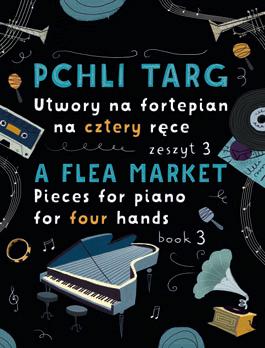
5 www.pwm.com.pl
ZBIGNIEW BARGIELSKI
Historyjki wiedeńskie a dwa fortepiany Vienna Stories for two pianos
bargielski
BĄDARZEWSKA
TEKLA
Memories of My Cottage, a collection of works for piano, PWM 12546
bądarzewska
also worth using in piano teaching as an extra or special item on the secondary-school level.
Two Nocturnes for piano PWM 12794
There is a collection of most popular composition of Tekla Bądarzewska. They are of similar character and level of difficulty. The collection comprises five pieces. Although these compositions are not complicated to play, Bądarzewska’s musical language is beguilingly gentle and elegant. The themes are songful, richly ornamented and most often presented in variation. Characteristic of her music are melodies based on a dotted rhythm, entwined with cascading passages and octave progressions. One senses the Polish character of this music, the almost tangible inspirations from the native landscapes.
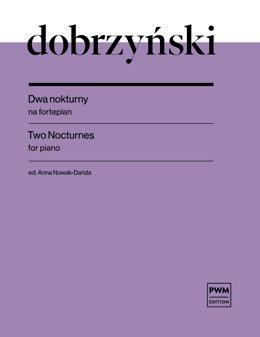
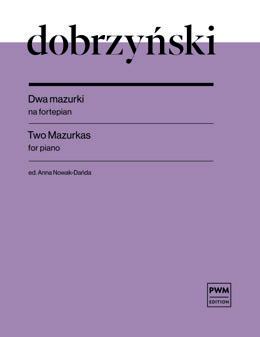
The maiden’s prayer, Mazurka in G minor, Mazurka brillante in E flat major, Memories of my cottage, The prayer heard
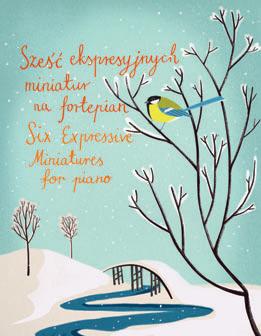
GARŚCIA JANINA
Six Expressive Miniatures op. 74 for piano PWM 9758
A collection of extraordinarily vivid miniatures for children and teenagers learning to play the piano. The texts included in the introduction set the mood for each composition.
Two Sonatinas op. 68 for piano PWM 9316
DOBRZYŃSKI IGNACY FELIKS
Two Mazurkas for piano PWM 12793
Despite the considerable simplification of means and the use of a conventional form, the composer succeeded in creating miniatures not devoid of charm, elegance and a certain unpretentious freshness. Their performance does not require advanced skill, so they may represent valuable additions to the repertoire for older pupils of primary schools of music, at the same time preparing them to play more difficult nineteenth-century miniatures, including the mazurkas of Chopin. Dobrzyński’s mazurkas are
The Sonatinas prepare children for performance of 2-3 movement pieces with a slightly larger form.
GĄSIENIEC MIROSŁAW Album for Children for piano PWM 12681
The Album for Children consists of over a dozen pieces composed in the spring of 2019. The works are ordered according to the level of difficulty. They are valuable in terms of educational purposes, as well as artistically. A colourful cover encourages young pianists to play the pieces inside.
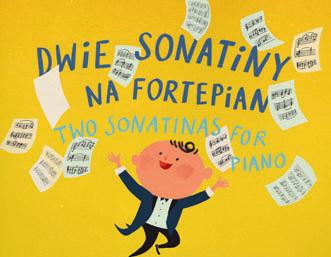

New Issues 2019–2022 6
JANINA GARŚCIA
MIROSŁAW GĄSIENIEC
JANINA GARŚCIA
Wspomnienie rodzinnej chatki Zbiór utworów na fortepian Memories of my Cottage A Collection of Works for Piano ed. Adam Piotr Rorat
GOWIK
KRYSTYNA
My Little World for piano

PWM 12259
The publication, consisting of 12 pieces, is a set intended for pupils of second and third grade of primary music schools. It will also work well in the initial stage of playing the piano as an additional instrument in the higher classes of primary music school.
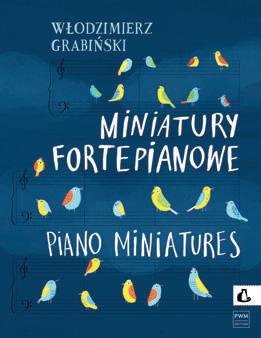
GRABIŃSKI
WŁODZIMIERZ
Piano Miniatures PWM 12379
Collection consists of eleven short works of increasing difficulty for children and youngsters. Most of them have titles indicating the form or genre, but programme elements also appear. Their artistic expression is genuine, tension is built up in a natural way, and the transparent melodic lines help young pianists to learn the works. Consequently, the last few pieces represent a very good introduction to works from the standard pianistic repertoire, such as etudes by Moritz Moszkowski and nocturnes by Fryderyk Chopin.
My Favourites for piano
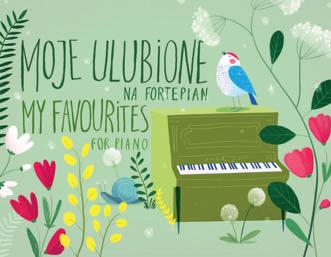
PWM 12341
The clear melodics of the works can be appreciated by young addressees of the publication, while the logical form and structure of the composition, using repetitive elements, facilitates their mastery of memory. The collection also deals with various technical problems, so it can be a good support material for learning to play the piano or a base for works extending the classical school repertoire.
JACHIM MARCIN
Prelude de concert No. 2, Les hesitations for piano solo PWM 12443
JUNG JAKUB
Five-moment for piano and accordion PWM 12690

KASSERN
TADEUSZ
ZYGFRYD
Candy Music Box for piano PWM 5493
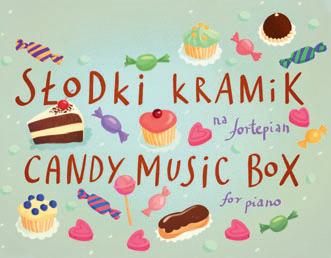
7 www.pwm.com.pl
KRYSTYNA GOWIK
Marcin Jachim Prélude de concert no. 2 Les hésitations
KRYSTYNA GOWIK
TADEUSZ ZYGFRYD KASSERN
KOWALOWSKI ZENON
Hello Little Doggy! Play with us for four hands PWM 12604
KURPIŃSKI KAROL
Fugue and Coda on Jeszcze Polska nie zginęła for piano PWM 12713

Overture to the opera „Jadwiga, the Polish queen” for piano PWM 12748
Polonaises, b. 1 for piano PWM 12295
In his output, Kurpiński realised the ideas of the national current. In a divided Poland, his numerous polonaises represented an ardent manifestation of patriotism. This musical genre aroused in listeners a sense of longing for the lost Homeland. Kurpiński’s compositions, written in the national spirit, were an inspiration and a model for the youthful polonaises of Chopin. Originally a „walked” rustic dance, the polonaise entered the courtly repertoire, its popularity peaking in the eighteenth and nineteenth centuries. With its moderate tempo, dignified (major) or elegiac (minor) expression, triple metre and characteristic cadence, it is impossible to confuse with any other dance.
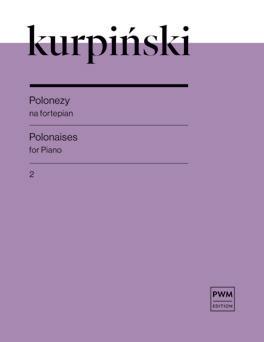
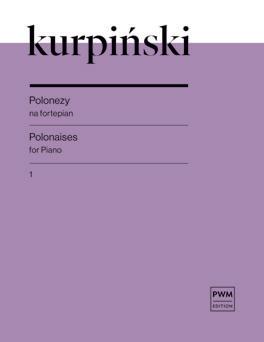
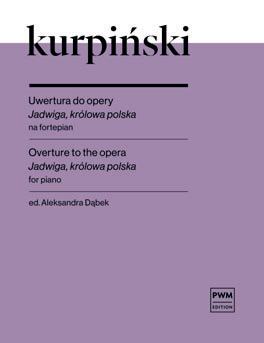
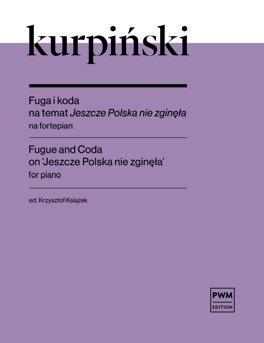
Polonaises, b. 2 for piano PWM 12303
LESSEL FRANCISZEK
Fugue op. 11 for piano for four hands PWM 12749
MANIA GRZEGORZ
For Four Children’s Hands, selected piano pieces for primary music school students PWM 12381
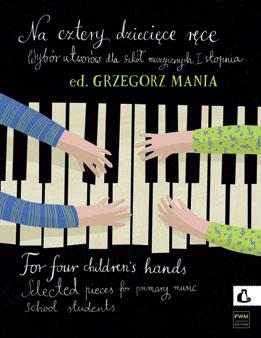
The idea for this collection stems from a deep belief that a piano duet should be an essential part of pianistic education from its very beginnings.
The collection includes 29 pieces and comes with a CD that contains most of the pieces recorded by professional pianists. Its purpose is not only to present the pieces but also to show different ways of interpretation and space for artistic freedom.
H. Bertini, Study in A major op. 149 No. 6, Study in E minor op. 97 No. 22, A. Diabelli, Sonatina in A minor op. 58, Sonatina in A major op. 163 No. 5, P. Eben, I’ll have another look, J. Garścia, Drum op. 37, I. Garztecka, Railway, C. Gurlitt, The beginner op. 211 No. 13, Capriccietta op. 147 No. 12, Hours of rest op. 102 No. 14, Valse noble op. 147 No. 4, E. Hradecky, Tango, A. Jensen, Evening music op. 59 No. 1, F. Kiel, Ländler op. 74 No. 6, Sonatina in D major op. 6 No. 1, F. Kuhlau,
New Issues 2019–2022 8
lessel
Fuga op. 11 na fortepian na cztery ręce Fugue op. 11 for piano for four hands
ZENON KOWALOWSKI
Sonatina in F major op. 17, Waltz in E flat major op. 28 No. 2, Waltz in G minor op. 24 No. 2, J. Lefeld, March, H. Lemoine, Rondo brillant in G major, J. Moser, Just for fun, M. Moszkowski, Children’s march op. 33 No. 1, I.J. Paderewski, Tatra album op. 12 No. 1, E. Putz, Come here and play, C. Reinecke, Silent night, holy night op. 181 No. 4, Humoresque op. 130 No. 4, Love happiness op. 165 No. 7, R. Schumann, Parade op. 85 No. 8, R. Twardowski, Ragtime
Lets Play More for four hands, selected pieces for advanced students




+ CD

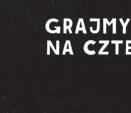
PWM 12598
The aim of this collection is to show the variety and beauty of the piano duo repertoire. A piano duo is an essential part of the piano education and one of the most demanding yet rewarding chamber formations. Not only does it require high level chamber skills, but also a great awareness of one’s pianistic skills, as both pianists are to create not only a common sound, but whole musical phrases, which is not an easy task for two different people and individual piano styles. This collection helps to develop those skills. It was designed for an intermediate and advanced level as well as for professional piano duos.
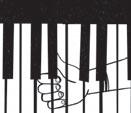
MOŁODYŃSKAWHEELER MARTA Pandemony for piano for four hands

PWM 12799
MONIUSZKO STANISŁAW
The Most Beautiful Tunes in easy arrangements for piano, b. 1 PWM 3761 The Most Beautiful Tunes in easy arrangements for piano, b. 2 PWM 4222
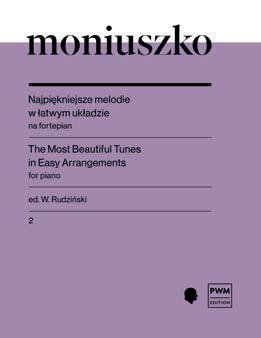
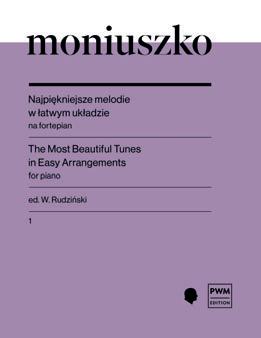
PACHULSKI HENRYK
Etudes for piano, b. 1 PWM 12914
Didactic works dedicated to the piano were the most frequently performed, best known and appreciated part of his art. Credits were given to them by e.g. Alexander Scriabin, Sergei Rachmaninoff, Alexander Goldenweiser and Konstantin Igumnov, who used those pieces in pedagogical work. Etudes are still used in primary and secondary music schools as they combine accurately artistic meaning and didactic purpose. The author, an outstanding pianist and pedagogue himself, wrote compositions which not only included a selected piano issue, but also left the performer space to express their own emotions.
9 www.pwm.com.pl
ed. GRZEGORZ MANIA PIOTR RÓŻAŃSKI mołodyńska wheeler Pandemony na fortepian na cztery ręce for piano for four hands mołodyńskawheeler
Etiudy na fortepian Etudes or piano ed. Bartłomiej Kominek, Marek Szlezer
pachulski
PADEREWSKI IGNACY JAN
Humoresques de concert op. 14 for piano PWM 12727
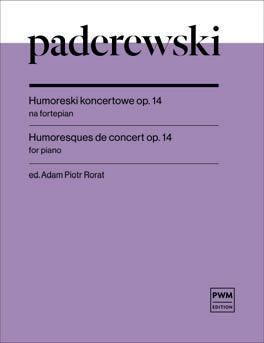
Miscellanea op. 16. a collection of works for piano PWM 12728
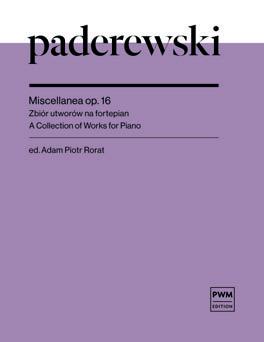
The works contained in the Miscellanea op. 16 were written over the course of eleven years. This set opens with Legende I. In this composition, Paderewski juxtaposed different impressions: calm, anxiety, dynamism, and buoyancy. The next work is Melodie, characterised by a beautiful sweeping cantilena, which begins and ends with the composer’s favourite interval: a fourth. Meanwhile, the Variations atest to Paderewski’s considerable compositional skill. We find here both simple harmonic structures and passages with an almost polyphonic texture. The next work is the Nocturne in which the significant role is played by impressions and emotions. In the next miniature in this set Legende II one hears distinct reminiscences of the ballades of Chopin. The Moment musical, the shortest piece in the set, written in a Schumannian-Schubertian spirit is the penultimate composition in the cycle Miscellanea, which ends with the Minuet. In this piece, Paderewski returns to his favourite stilisation.
Legende I, Mélodie, Variations, Nocturne, Legende II, Moment musical, Minuet
Sonata in E flat minor op. 21 for piano PWM 12881
paderewski
Paderewski consciously referred to the Romantics in his compositional work, as is manifest in the Sonata in the rich array of pianistic means developed by Chopin and Liszt. Paderewski remains also faithfull in this work to early Romantic aesthetic ideals; important to him was a pleasant, harmonious sound allied to a distinct formal structure. He cherrished the idea of objective beauty and favoured keeping a tight rein on expression and leading a characteristic melodic line as a modified recurring musical idea. The Sonata is a reflection of Paderewski’s views.
RYTERBAND ROMAN
Sonata No. 1 for piano PWM 12505
STOLPE ANTONI
Moment musical, Variations for piano PWM 12554
stolpe
The present publication fills a gap in the publishing market caused by the lack of access to the piano works of Antoni Stolpe (1851–1872). These valuable and striking compositions deserve a lasting place in the repertoire of concert pianists. This is a youthful work, consisting of a theme and twenty-one variations.
Mirosław Gąsieniec, who prepared this first edition, ultimately chose from the manuscript seventeen variations and proposed a specific order to them, guided by the intention of forging an optimal architecture and dramatic structure to the cycle. The Moment musical appended to this edition is one of the more elaborate piano works by the eighteen-year-old Stolpe.
New Issues 2019–2022 10
Sonata es-moll op. 21 na fortepian Sonata in E flat minor op. 21 for piano
Moment musical, Variations na fortepian or piano ed. Mirosław Gąsieniec
Selected pieces for piano
PWM 12553
stolpe
This collection is the first ever presentation of works which Stolpe composed during the Warsaw period in his life, before he left, in June 1869, to study music in Berlin. The piano works of Antoni Stolpe (1851–1872) place this young composer and pianist in the same rank as such talented Polish composers of the second half of the nineteenth century as Juliusz Zarębski and Ignacy Jan Paderewski.
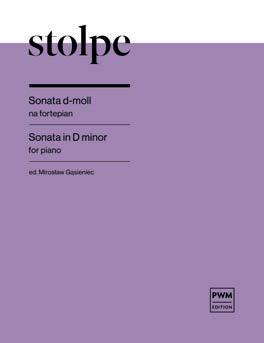
Sonata in D minor for piano PWM 12555
TWARDOWSKI
ROMUALD
Fanfair for piano PWM 8866
Six short characteristic pieces preparing for listening to and performing atonal music, intended for somewhat advanced (third tear of tuition) young pianists for stage performance.
WALACIŃSKI ADAM
Sonata B minor for piano PWM 12504
walaciński
ZUBEL AGATA
Piano Piano but not Pianissimo for two pianos and one pianist PWM 12654
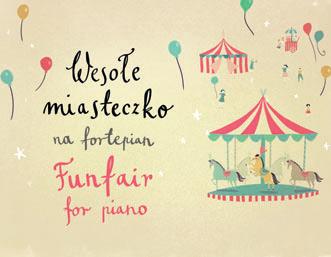
ŻELEŃSKI
WŁADYSŁAW
Six Character Pieces op. 17 for piano, b. 1 PWM 12815
The compositions collected in Żeleński’s opus 17 have been unjustly forgotten. Their undeniable qualities include advanced harmonies and expressive melodic writing, as well as a wide range of textural means and composition techniques. Quite „densly” written, these miniatures may prove challenging, but the right fingering eliminates many difficulties of performance. Each of these miniatures can function as a separate work, but when played as two three-part cycles they fall into logical wholes, in which the climax is reached in the last, most elaborate piece.
Six Character Pieces op. 17 for piano, b. 2 PWM 12816
żeleński
Sonata in G minor op. 5 for piano PWM 12847
Theme varie for piano PWM 8638
Two Mazurkas op. 31 for piano PWM 12886
11 www.pwm.com.pl
Utwory wybrane na fortepian Selected pieces for piano ed. Mirosław Gąsieniec
ROMUALD TWARDOWSKI
Sonata h-moll na fortepian Sonata B minor for piano ed. Marek Szlezer zubel Piano Piano But Not Pianissimo na dwa fortepiany jednego pianistę for two pianos and one pianist Sześć utworów charakterystycznych op. 17 na fortepian Six Character Pieces op. 17 for piano 1 żeleński Sześć utworów charakterystycznych op. 17 na fortepian Six Character Pieces op. 17 for piano 2
ACCORDION
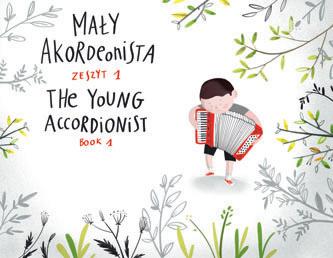
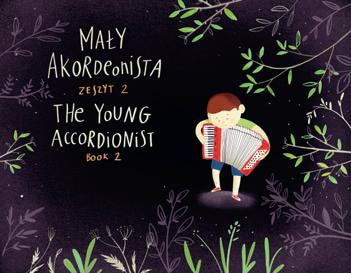
KRAUZE ZYGMUNT
CHUDOBA MIECZYSŁAW
The Young Accordeonist, b. 1 PWM 6149
Two books containing settings of Polish popular and folk melodies, along with little pieces by Polish composers (book 1), as well as arrangements of well-known works by foreign composers (book 2) for beginners and for intermediate-level pupils. The attractive, yet simple settings and arrangements permit young artists-in-training to step into the world of rich and colorful Polish folklore, as well as to encounter great works by recognized masters of composition at an early stage in their education. The collections are intended both for beginning and intermediate-level amateurs, and for pupils at primary-level schools in the artistic education system.
The Young Accordeonist, b. 2 PWM 6150
B. Bartok, Folk Song, L. van Beethoven, Dance, Contradance, F. Le Couppey, Bourée, W.A. Mozart, Waltz, D. Kabalewski, Minuet, M. Glinka, Andalusian dance, Mazurka, C.M. von Weber, Berceuse, S. Majkapar, The musical treausure box, Berceuse, Polka, R. Schumann, Der frőhliche Landmann, B.L.P. Godard, Berceuse from the opera „Jocelyn”, A. Goedicke, Scherzo, F. Schubert, Waltz, D. Shostakovich, HurdyGurdy, P. Tchaikovsky, The doll’s burial, Waltz from the „Four seasons cycle”, The nutcracker balet, J. Strauss, Feuerfest, E. Grieg, Norwegian dance, A. Dargomyżski, Laura’s romance from the opera „The stone guest”, J.-Ph. Rameau, Tambourin.
Portrait of the Lover for accordion PWM 12445
RYDZEWSKA ŻANETA SynEsthESiA for accordion PWM 12451
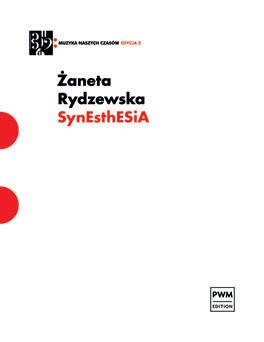
SŁAWIŃSKI PAWEŁ
In the Valley of Hornets for accordion PWM 12684
HARPSICHORD
KRAUZE ZYGMUNT Fragments of Memory for harpsichord PWM 12375
krauze

New Issues 2019–2022 12
Paweł Sławiński In the Valley of Hornets
Okruchy pamięci na klawesyn Fragments of Memory for harpsichord
MIECZYSŁAW CHUDOBA Wyb r i opracowanie Selection and arrangement MIECZYSŁAW CHUDOBA Wyb r i opracowanie Selection and arrangement
String instruments
VIOLIN
BACEWICZ GRAŻYNA
Concertino for violin and piano
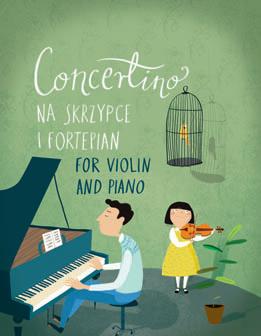
PWM 6558
Grażyna Bacewicz’s popular three-movement Concertino is intended to be performed by young violin students. The piece does not impose high technical requirements (1st-3rd positions). The outer movements are in fast tempo, while the middle Romance involves a tuneful cantilena in long phrases.
Easy Pieces for Violin and Piano, b. 1 PWM 6559
This cycle of easy works intended for violin with piano accompaniment was composed in 1945. They are perfectly written, excellently sounding, suitable for music schools, teacher training colleges, domestic music-making, community centers and popular concerts.
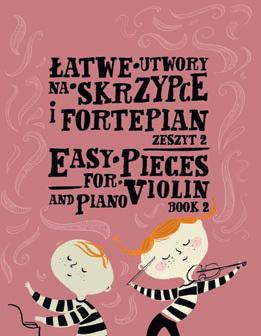

Easy Pieces for Violin and Piano, b. 2 PWM 5608
Légende for violin and piano PWM 12624
The Légende refers to one of the most popular Polish miniatures for violin –Henryk Wieniawski’s Légendeop. 17. There are many similarities between the two works, including in their form, the rhythmic subdivisions in the piano part, and the intense climax, with a similar glissando as in the Wieniawski and a rapidly descending scale progression, in the violin part. Yet Grażyna Bacewicz’s musical language is more innovative, distinguished by an interesting harmonic layer, characteristic of this composer, and an airy, somewhat mysterious, melody in the violin.
Partita (youthfull work) for violin and piano PWM 12625
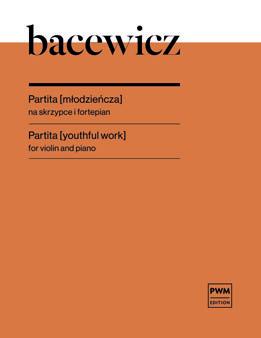
Three-movement work written at the beginning of the 30s while composer was studying composition in Warsaw and Paris.
The opening Allegro is remarkably lively, dancing and lyrical. Thanks to the counterpointing or complementing of motifs, the violin part corresponds excellently with the piano part. The middle Andante is marked by considerable calmness, although at times the narrative becomes somewhat agitated. The punchy Vivo finale, containing elements of a rondo with variations, ends with a striking coda in the parts of both instruments.
13 www.pwm.com.pl
n
skrzypce fortepian Légende or
GRAŻYNA BACEWICZ
bacewicz Legenda
a
violin and piano
Partita, Scherzo for solo violin PWM 12626
bacewicz
This three-movement Partita is marked on one hand by the great exuberance of the outer movements and on the other by the tangible Parisian elegance. The middle movement Andante is a very lyrical, somewhat melancholy song. These skilfully contrasted movements make up a composition that is complete in terms of form and variety of characters.
Scherzo is an exceptional and very valuable work. It expands the still modest repertoire for unaccompanied violin. This virtuosic miniature, lasting just a few minutes, was written in 1945. The motif that evolves as the work progresses is initially presented in the key of C major, before modulating to many different keys, sometimes quite distant from one another, in a sequential man-ner that is characteristic of many of Bacewicz’s works. This light, airy and joyful Scherzo will certainly be to the taste of all violinists seeking striking and interesting works. It will be a splendid choice for every concert occasion, as part of a recital or as an encore piece.
Sonata No. 1 for violin and piano
PWM 12623
bacewicz
Composing her First Sonata in 1929, the barely 20-year-old Grażyna Bacewicz was taking her first steps in the world of chamber music. At that time, Bacewicz was hugely influenced by the music of Karol Szymanowski, while at the same time seeking her own individual style. Studying both violin and piano at the same time gave her the perfect opportunity to perform her own works in concerts and thereby verify her compositional ideas. Together with the Second String Quartet and the
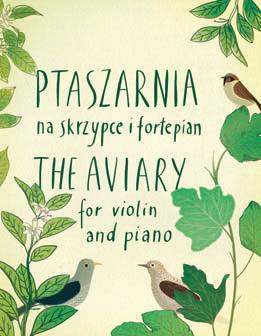
Symphonietta, First Sonata formed part of the programme of her composition exam. Yet it has never been included in the official catalogue of her works.
BACH JOHANN SEBASTIAN
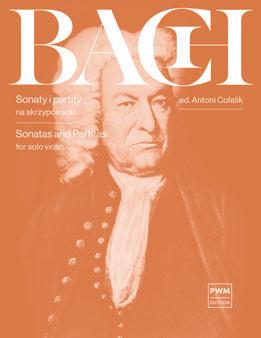
Sonatas and Partitas for violin solo PWM 12607
The present edition based on a facsimile of a Bach manuscript represents an attempt to take a new look at this music, taking account of the realities of the Baroque, including the technical advancement of instruments at that time, which differed from modern-day instruments (shorter, arched bow, delicately sounding gut strings, shorter fingerboard), and also the Baroque way of thinking about music. The present edition is aimed both at classical violinists trained in a modern way and specialists in Baroque performance. Both camps are offered a text that is complete in terms of technical execution (fingering, bowing), with the aspect of interpretation left open.
COFALIK ANTONI, GARŚCIA JANINA
The Aviary for violin and piano PWM 9719
The three miniatures for violin and piano are the cycle of illustrative pieces, in which the virtuoso element plays a prominent role. Intended as studies devoted to specyfic technical problems they possess both a didactic value and musical attractivness. The student should already be familiar with, and have mastered the problems that they contain at primary school. The technical content and the degree of difficulty of particular pieces are differentiated.
New Issues 2019–2022 14
Partita, Scherzo na skrzypce solo or solo violin
Sonata na skrzypce fortepian Sonata no. 1 or violin and piano
ANTONI COFALIK
IWAN EWA
Concerto in A major No. 1 Layla for violin and piano
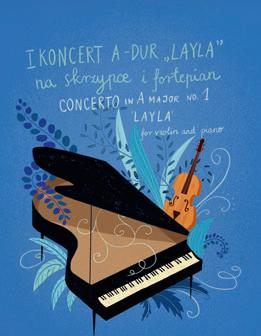
PWM 12641
The Concerto in A major Layla for violin and piano is an interesting proposition for the primary music school students. A good choice for teachers, who are searching for new, rarely performed repertoire for their students. Short, catchy themes resemble the melodies from the fairy tales – the main protagonists embark on different, sometimes dangerous, adventures. Fortunately, everything ends well!
Musical Journeys b. 1 for violin and piano PWM 12642
A collection of pedagogical works for violin and piano for the primary music school students.

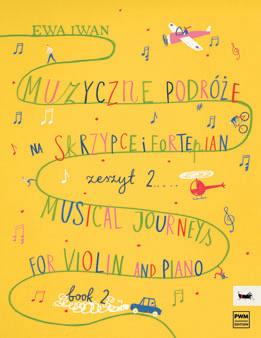
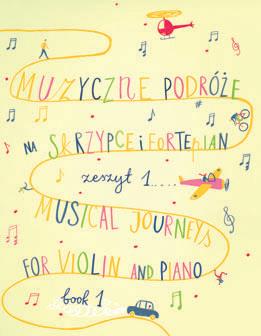
Musical Journeys lead us through the lands, in which we encounter various insects, including a butterfly dancing a waltz, a flea hopping in time with polka, or a termite entertaining with ragtime music.
Musical Journeys b. 2 for violin and piano PWM 12643
In her second book of ‘Musical Travels’ for violin and piano, Ewa Iwan invites young violinists on a long journey, during which they will learn dances from Europe (tarantella, waltz, csardas, a Spanish dance) and rhythms from New Orleans (ragtime). They will also make a brief stop in the Polish mountains. As they travel, they will learn several new violin skills: playing in fifth position, even on the G string, more difficult double stops and chords, and above all – bowing articulation.
LASKOWSKI WOJCIECH
Barocchi-Cocchi for violin and viola organista
PWM 12733
The piece shows the Baroque idea of competition in an original instrumental texture: a combination of violin and viola organista. The tone colour contrasts are emphasized by tonality, juxtaposed with Messiaen’s modi, and by the contrapuntal rhythm. References to Bach’s output fit into the surconventional concept of the work, giving the elements of the Baroque language a contemporary context.
ŁUCIUK JULIUSZ
Three Miniature Pieces for violin and piano PWM 12645
This work forms cycle, to be performed as a whole, although each of the pieces can also function independently. As a cycle, it has an inner logic, based on an organisation modelled on a three-movement sonata. It also displays some similarity to Szymanowski’s Mythes, particularly in terms of the combinations of different types of expression. ŁUKASZEWSKI
15 www.pwm.com.pl
Neopolis concertino for violin and piano
MACIEJEWSKI ROMAN Sonata for violin and piano PWM 1216 EWA IWAN EWA IWAN Kompozycja w oryginalnej fakturze instrumentaltonalność, zestawiona Messiaerytmika. Nawiązania do twórczości nalną koncepcję dzieła, nadając elementom barokowego języka współThe piece an original instrumental texture: a combination of violin and viola orare emphasized by tonality, juxtathe contrapuntal rhythm. References ventional concept of the work, giving the elements of the Baroque lanWojciech Laskowski Barocchi-Cocchi na skrzypce violę organistę for violin and viola organista S ONATA S ONATA S ONATA S ONATA S ONATA S ONATA Roman Maciejewski Polskie Wydawnictwo Muzyczne SONATA na skrzypce fortepian • for violin and piano łuciuk Trzy miniatury na skrzypce fortepian Three Miniature Pieces or violin and piano
PAWEŁ
PWM 12908
MALAWSKI ARTUR
Burlesque
for violin and piano
PWM 12596
Mazurka for violin and piano
PWM 12597
Malawski’s fascination with highland music is expressed in such works as the Mazurka for violin and piano. In this short work, the combination of a typical sheperd’s song and refined harmonic writing, together with Malawski’s typical jagged rhythms in the middle section, give a unique effect. This miniature piece, not reissued for many years, should interest budding young musicians and concert artists alike with its characteristic colouring and freshness.

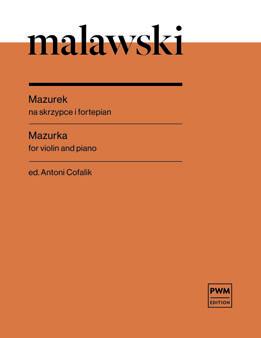
PALESTER ROMAN
Polish Dance from the balet Song of the Earth for violin and piano PWM 12448
palester
PRZEGENZA JAN PAWEŁ
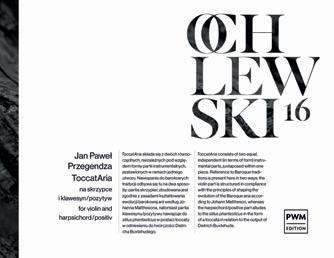
ToccatAria for violin and harpsichord/ positiv PWM 12734
ToccatAria consists of two equal, independent (in terms of form) instrumental parts, juxtaposed within one piece. Reference to Baroque traditions is present here in two ways: the violin part is structured in compliance with the principles of shaping the evolution of the Baroque aria according to Johann Mattheson, whereas the harpsichord/ positive part alludes to the stilus phantasticus in the form of a toccata in relation to the output of Dietrich Buxtehude.
SIKORA ELŻBIETA
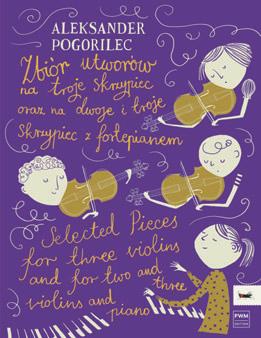
Soleos for violin solo and electronics PWM 12405
sikora
POGORILEC
ALEKSANDER
Selected pieces for three violins and two and three violins and piano PWM 12378
SZALONEK WITOLD
Chaconne-fantaisie for violin PWM 12905
szalonek
This work reveals the remarkable world of Szalonek’s imagination. Making use of the traditional form of the chaconne, he leaves the soloist ample possibilities for interpretation –avec fantaisie – particularly in terms of agogic shifts, and also in the way the narrative is led. In Chaconne-fantaisie, the soloist displays the whole spectrum of the violin’s sonoristic capacities, especially part playing, producing contrasts of sound through characteristic figurations juxtaposing playing in different registers, playing arco and pizzicato in alternation, double stops and chords.
New Issues 2019–2022 16
Soleos na skrzypce solo elektronikę for solo violin and electronics
Taniec polski z baletu Pieśń o ziemi na skrzypce fortepian Polish Dance from the ballet Song of the Earth for violin and piano
Chaconne-Fantaisie a skrzypce solo for solo violin
ŚWIDER JÓZEF
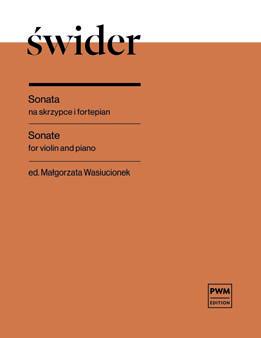
Sonata for violin and piano
PWM 12349
VIVALDI ANTONIO
Concerto in D minor RV 541 for violin, organ, string orchestra and basso continuo piano reduction PWM 12036
WIENIAWSKI
HENRYK
Fantaisie orientale pour violon avec accompagnement de piano op. 24, CWA vol. 23 PWM 12503
vivaldi
Two Salon Mazurkas op. 12 for violin and piano PWM 6896
Three Caprices for violin and piano PWM 5905
ŻELEŃSKI
WŁADYSŁAW
Courting Scene for violin and piano PWM 6314
The Fantaisie orientale op. 24 is one of the two works with opus number to be published after the death of Henryk Wieniawski. It was written in 1876 in Brussels.
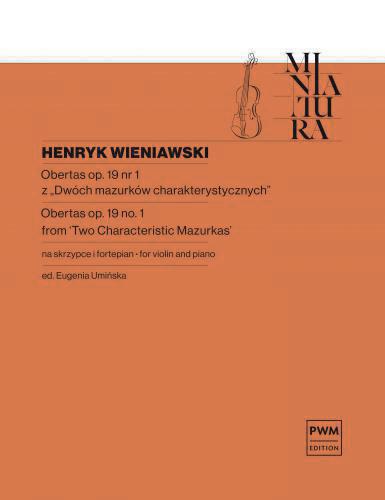
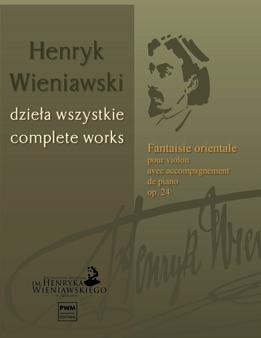
Fantaisie is a short, cohesive work in one movement with a rhapsodic form and improvisational character. Wieniawski’s Fantaisie orientale is a virtuosic work for the salon. The level of technical demands placed on violinist high.
Obertas op. 19 No. 1
from Two Characteristic Mazurkas for violin and piano
PWM 2317
Romance, Danse fantastique for violin and piano PWM 12812
żeleński
Both the opus 29 works are of a showstopping character and they possess undeniable artistic qualities. The Romance in G major with its lyrical character and drawn-out melody, points unequivocally to vocal, song prototypes for this genre, as also evidenced by the composer’s reference to the model of reprise-type ternary form. Contrasting with the Romance’s cantilena songfulness is the lively Danse fantastique that follows it. This piece requires considerable technical proficiency of the performer and truly virtuosic form.
17 www.pwm.com.pl
HENRYK WIENIAWSKI Dwa mazurki salonowe op. 12 Two Salon Mazurkas op. 12 na skrzypce fortepian for violin and piano ed. Irena Dubiska WŁADYSŁAW ŻELEŃSKI Scena zalecanek Courting Scene na skrzypce fortepian for violin and piano ed. Olgierd Andrzej Straszyńscy
Romans, Taniec fantastyczny na skrzypce fortepian Romance, Dance fantastique for violin and piano HENRYK WIENIAWSKI Trzy kaprysy Three Caprices na skrzypce fortepian for violin and piano ed. Zdzisław Jahnke Koncert d-moll RV 541 na skrzypce, organy, orkiestrę smyczkową basso continuo w opracowaniu na skrzypce fortepian Concerto in D minor RV 541 for violin, organ, string orchestra and basso continuo prepared for violin and piano
Sonata in F major op. 30 for piano and violin PWM 8615
A performance of Sonata in F major requires great musical maturity of the players and the ability to think in terms of larger formal plans. This work can be recommended more to experienced chamber musicians than to soloists, who have little scope here for individual virtuosic display. It is worth poiting out that this work adheres entirely to the stylistic conventions of its times, and in terms of the quality of its design and its overall artistic value, it is a match for the violin sonatas of Brahms.
VIOLA GAWROŃSKI WOJCIECH
Sonata for viola and piano PWM 838
Sonata op. 22 probably composed at the very end of the nineteenth century, is by any standards worthy of attention. It is of crucial historical significance, as the first known Polish chamber work to use viola and the first cyclical work for viola in the Polish musical literature.
The Sonata opens with a dignified polonaise theme, which, together with the intertwining quick triplet second theme, forms the basis for the quite distinct sonata allegro form. The second movement, a gloomy, solemn funeral march in ABA1 form, is followed by a third movement ripe with humour, but mixed with a touch of reflection, in a quite elaborate sonata-rondo form. Compared to the quite abundant, albeit little known, British and German literature for viola and piano from the turn of the twentieth century this work is an extremely interesting, if rather forgotten, example.
ŁUKASZEWSKI PAWEŁ
Aria for viola and piano PWM 12895
Neopolis concertino for viola and piano PWM 12907
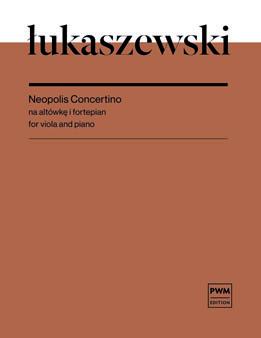
Neopolis Concertino is a chamber version of Neopolis Concerto, and consists of three movements. The first is songful, full of expression and varied in terms of tone colour. The second is dominated by a moving cantilena. The energetic third movement, with an elaborate solo cadenza, draws the listener into a world of amusement and grotesqueness.
The Concertino ends with a reminiscence of the opening motif from the first movement. This composition highlights the most individual features of Paweł Łukaszewski’s music. Contemplation combined with moving harmonies, emotionally heightened chords and energetic phrasing demands maturity of the performer, as well as an openness to seeking new timbral qualities in the instrument. At the same time, all these elements of the work mean that working on it provides exceptionally beautiful creative experiences and encourages the artist to develop in terms of both technique and interpretation.
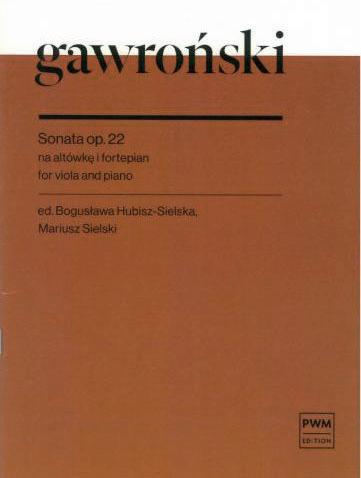
POGORILEC
ALEKSANDER
Selected Pieces for viola and piano PWM 12417
Making music – like having fun – brings great joy to everyone who plays, and when you have the chance to make music
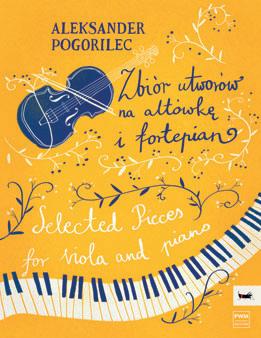
New Issues 2019–2022 18
Sonata F-dur op. 30 na fortepian skrzypce Sonata in F major op. 30 for piano and violin ed. Kaja Danczowska, Janusz Zethey łukaszewski Aria na altówkę fortepian for viola and piano
żeleński
with your schoolfriends, the joy is greater still. These works for viola and piano were written for pupils, so that they could play together and develop their skills. The viola literature often consists of transpositions of violin works; here there are a few compositions written specially for viola that they will enhance the repertoire of music school pupils playing the viola.
RUDZIŃSKI WITOLD
Sonata for viola and piano
PWM 345
stopped working, and the performer finished playing the work alone. It was then that the idea arose to single out a passage from the closing part of the cello in the fifth movement of the Suite, beginning with the solo instrument’s cadenza, and recompose it into a separate work: Cadenza. It begins with a simple ostinato motif, which, developing and transforming to a paroxysmal finale, creates a form that gives the performer a great deal of freedom and the opportunity to display his or her own inventiveness and interpretation.
SPORNIAK FILIP
Wildness for cello PWM 12685
CELLO
ŁUKASZEWSKI
PAWEŁ
Neopolis concertino for cello and piano
PWM 12909
PORĘBSKI ADAM
Hazy Melodies for cello and piano
PWM 12679
WALACIŃSKI ADAM
Fantasia sopra Ave Maris Stella for cello solo PWM 12496
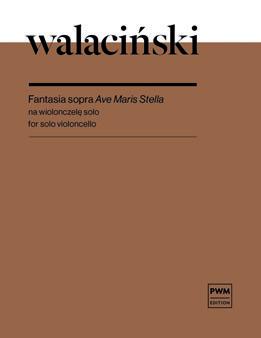
ZUBEL AGATA
Aria from the opera Bildbeschreibung for cello PWM 12703
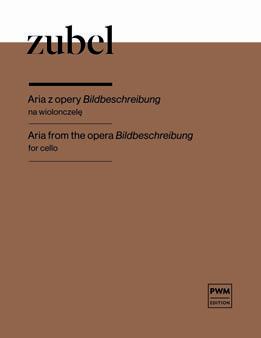
SIKORA ELŻBIETA
Cadenza for cello
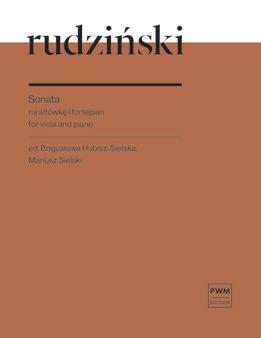
PWM 12452
During one performance of the Suite for cello and tape, the apparatus playing back the electroacoustic part suddenly
19 www.pwm.com.pl
Neopolis Concertino na wiolonczelę fortepian for cello and piano
łukaszewski
sikora Cadenza na wiolonczelę for violoncello
Adam Porębski Mgliste melodie Hazy Melodies
Filip Sporniak Wildness
DOUBLE BASS
— ANTKOWIAK
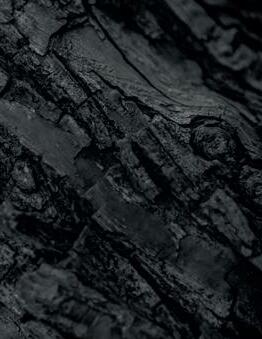
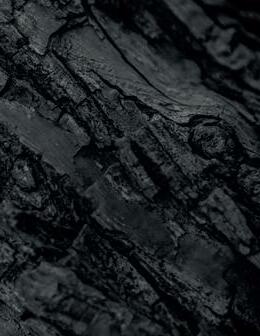
MARCIN
Connexion for double bass and tape PWM 12261
GRAJNERT PAWEŁ
My Magic Double Bass PWM 12325
My Magic Double Bass, accompaniment for double bass in solo tuning PWM 12334
—
My Magic Double Bass, accompaniment for double bass in orchestral tuning PWM 12514
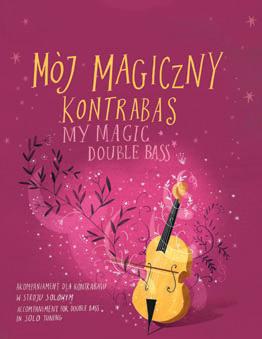
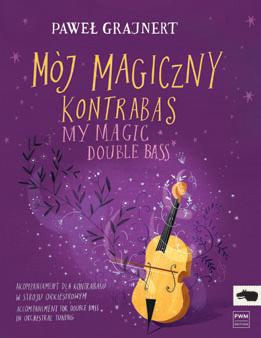
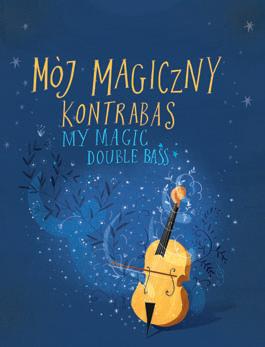
SŁYŻ
ALEKSANDRA
Glossy for double bass and electronics
PWM 12882
STAŃCZYK
—
MARCIN
Three Afterimages for double bass PWM 12662
ZUBEL AGATA
Aria from the opera
Bildbeschreibung for double bass PWM 12705
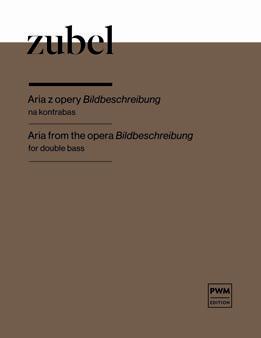
New Issues 2019–2022 20
PAWEŁ GRAJNERT
14 Aleksandra Słyż Glossy na kontrabas i elektronikę for double bass Inspiracją do powstania utworu a dokładniej postać Jacka Torrance’a, od świata stopniowo popada w obłęd. Głównym zamierzeniem scalenie partii instrumentalnej ścieżka elektroniczna bazuje w pełni nie zawiera żadnych dźwięków obcego pochodzenia. The inspiration behind this work was more precisely the character of Jack into madness after becoming comwork was to fuse the instrumental electronic layer. The sole means of the electronic layer is based entirely on modifications of its timbres and PAWEŁ GRAJNERT stańczyk Three Afterimages na kontrabas solo for solo double bass 14 Marcin Antkowiak Connexion na kontrabas i taśmę for double bass and tape Inspiracją do utworu stał się postęp Łączność zawsze wydawała dźwięki –fonów. Sposoby międzyludzkiej kopresowane, to nie zawsze wywołują This work was inspired by technologof communications, which have terminals, modems and telephones. although they are quicker and more sult in comprehension in the receiver.
Wind instruments
FLUTE
CHMIELEWSKA ALEKSANDRA
Mohawk Tale for flute and piano 12441
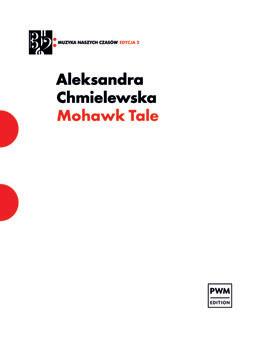
CHYRZYŃSKI MARCEL
Haiku No. 3 for flute PWM 12675
chyrzyński
Haiku No. 3 alludes to the original Japanese form. The manner of performance of the individual fragments, as well as the mood being built by the composer, are clearly specified here. For this reason, the performer has little space for emotional over-interpretation of the work, which in itself arouses various emotions in the listener. The work is composed for an instrumentalist who has mastered the technique of permanent breathing. The composer also allows the performance of the work by flutists who do not have this technique mastered. In this case the breaths and droping of notes (mainly in the last part of the piece) depend on the individual preferences of the instrumentalist. A piece is intended for the last years of the 2nd grade of a music school, academic performers or professional musicians.
KUPCZAK SŁAWOMIR
Res facta for flute and piano PWM 11440
ŁUKASZEWSKI PAWEŁ
Arioso for flute and organ 12923
Idiom for flute or piccolo flute and organ PWM 12924
Kurpian Impressions for flute and piano PWM 12925
łukaszewski
Kurpian Impressions is a work of a didactic character, from the youthful period in the oeuvre of Paweł Łukaszewski. It is distinguished by its vitality and lightness. The composer introduces an interesting stylisation of varied character, referring to the traditional song repertoire, in which the flute part is given a vocal treatment. This seemingly uncomplicated work poses considerable challenges for the performers in terms of interpretation.
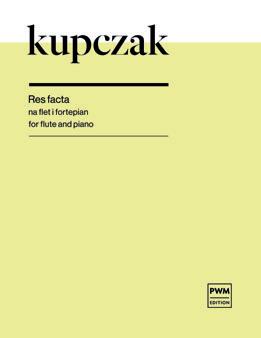
21 www.pwm.com.pl
Haiku no. 3 na flet for flute
Arioso na flet organy for flute and organ
łukaszewski
Idiom na flet lub flet piccolo organy for flute or piccolo and organ
łukaszewski
Impresje kurpiowskie na flet fortepian Kurpian Impressions for flute and piano
Lullaby for flute and harp PWM 12926
łukaszewski
CLARINET
DANEL KATARZYNA Hall of Mirrors for clarinet and piano PWM 12689
SIKORA ELŻBIETA
Voyage III for flute PWM 12667
sikora
ZUBEL AGATA
Aria from the opera Bildbeschreibung for bass flute PWM 12702 Aria from the opera Bildbeschreibung for contrabass flute PWM 12701
In theis work the main idea consists of sequences of pairs of notes in the piano part, inspired by the phenomena of reflection and vanishing. They may bring to mind a fading echo or the electronic effect of delay. The mood and narrative of this work are forged partly by the clarinet, which sometimes dominates the piano melodically and at other times discreetly enhances its sound by means of delicate tremolandos. The timbres of piano and clarinet complement one another in a musical game of light and dark.
LUTOSŁAWSKI WITOLD
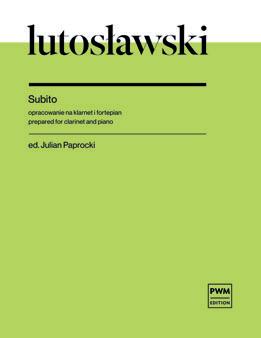
Subito for clarinet and piano PWM 12820
ZUBEL AGATA
Aria from the opera Bildbeschreibung for contrabass clarinet PWM 12704
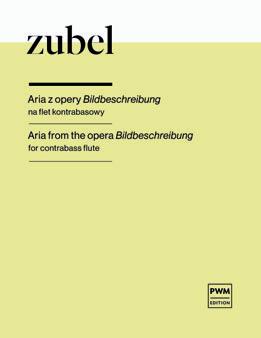
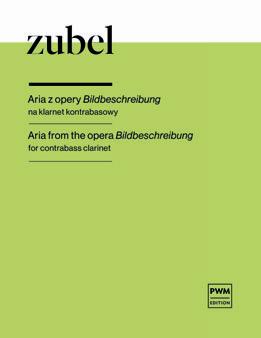
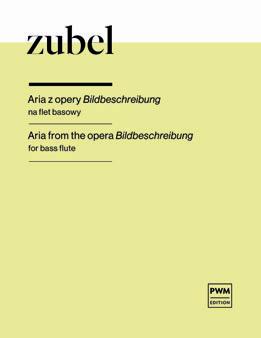
New Issues 2019–2022 22
Lullaby na flet harfę for flute and harp
Voyage III na flet for flute
EDYCJA KtDl|GbitltHllfMi|MkNhCóMifOTi
Katarzyna Danel Gabinet luster
Hall of Mirrors
OBOE
ŁUKASZEWSKI
PAWEŁ
Trinity Concertino for oboe and piano PWM 12600
łukaszewski
refers to Pergolesi’s Stabat Mater. The use of simple means- a songful melody, major-minor harmony and a quasi-polymeric writing-allows the work’s emotional layer, shaped by sonoristic-colouristic qualities, to come to the fore.
This is a chamber version of the Trinity Concerto (2007) for oboe or soprano saxophone and strings. The title refers to the place where the concerto was written: Trinity College Cambridge. The three movements (Larghetto, Agitato and Largo) are linked by a fusion of meditative, lyrical and dramatic elements, formed by structural tensions and dense textures. Vitality and exuberance are merged with some quite startling lyrical and melancholy strands, thus forging unity through contrast. The piano part comprises subtly modified sound layers based on selected material.
SAXOPHONE
CHAŁUPKA WOJCIECH
Empusa for alto saxophone PWM 12687
ŁUKASZEWSKI
PAWEŁ
Aria for alto or soprano saxophone and piano PWM 12599
This work is an instrumental version of the second movement of the Luctus Mariae (Mary’s mourning, 2010) for solo voices and instrumental ensemble. The original work
Trinity Concertino for alto or soprano saxophone and piano PWM 12601
SIKORA ELŻBIETA
Lisboa, Tramway 28
Hommage a Fernando Pessoa for saxophone(s) and tape PWM 12138
sikora
TRUMPET
CICHOR SŁAWOMIR
Play it all! A set of studies for trumpet PWM 12954
Play it all! is a collection of studies for budding young trumpeters. The progressively arranged exercises will help the young musician to master the basic ways of articulating the sound, to consolidate characteristic rhythms and to develop a sensitivity to phrasing. Each work is preceded by a note on the technical elements it addresses, with a suggestion as to what the pupil should pay particular attention to while practising. One exceptional feature of the collection is that the studies come with variants, marked with the letter ‘a’, thanks to which each of them can be practised in a more accessible
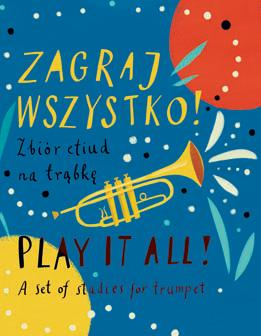
23 www.pwm.com.pl
Trinity Concertino na saksofon sopranowy lub altowy fortepian for soprano or alto saxophone and piano
łukaszewski
Lisboa, tramway 28 hommage à Fernando Pessõa na saksofon(y) taśmę for saxophone(s) and tape
Wojciech Chałupka Empusa
Aria na saksofon sopranowy lub altowy fortepian for soprano or alto saxophone and piano
łukaszewski
Trinity Concertino na obój fortepian for oboe and piano SŁAWOMIR CICHOR
key or with altered articulation. In his foreword, the author explains to pupils why it is worth playing studies even though there are so many interesting works around, and he adds a few hints that make the practice more effective and enjoyable.
JACHIM MARCIN
Cadenza furiosa for trumpet PWM 12682
Plucked instruments
GUITAR
GÓRECKI MIKOŁAJ PIOTR
Mesto I, Mesto II for guitar solo PWM 12411
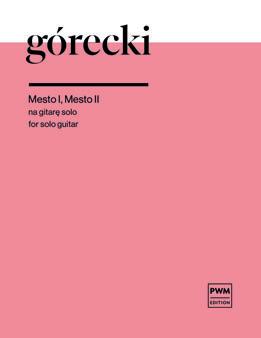
ZUBEL AGATA
Aria from the opera Bildbeschreibung for trumpet PWM 12706

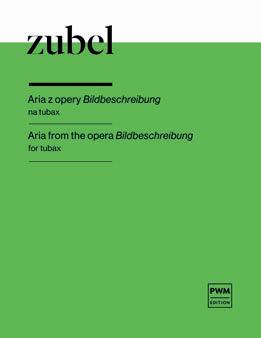
TUBAX
ZUBEL AGATA
Aria from the opera Bildbeschreibung for tubax PWM 12707
RYTERBAND ROMAN
Sonatina for guitar PWM 12313
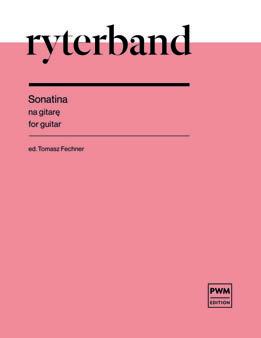
New Issues 2019–2022 24
Marcin Jachim Cadenza furiosa
Percussion instruments
KICIOR KRZYSZTOF pluviophilia for marimba and piano PWM 12770
Krzysztof Kicior pluviophilia
NOWAK ALEKSANDER
Three Callings for carillon PWM 12510
KWAPIŃSKI

PAWEŁ
On the Other Side of the Mirror for multipercussion score
PWM 12457
PTASZYŃSKA MARTA
The Twittering Tree for xylophone PWM 12322
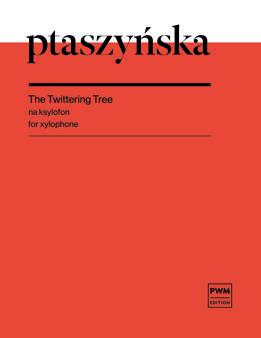
CARILLON
KRAUZE ZYGMUNT
Reveille for carillon
PWM 12902
MYKIETYN PAWEŁ
STOP for carillon PWM 12678
SIKORA ELŻBIETA
Running North for carillon PWM 12729
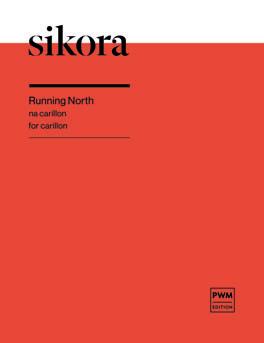
ZUBEL AGATA
Memory of Bronze for carillon PWM 12972
25 www.pwm.com.pl
Hejnał a carillon Reveille for carillon
krauze
EDYCJA
STOP na carillon or carillon zubel Pamięć z brązu na carillon Memory of Bronze for carillon
Trzy wezwania na carillon Three Callings for carillon
mykietyn
nowak
Chamber music
BACEWICZ GRAŻYNA
String Quartet (youthful work) score and parts PWM 12637
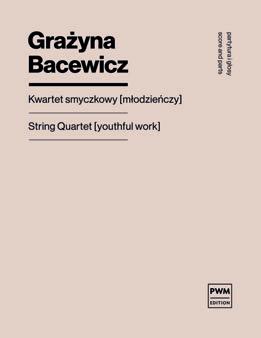
Quatuor (a cordes) score and parts PWM 12636
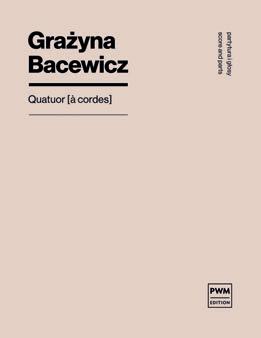
BARGIELSKI ZBIGNIEW
String Quartet No. 5 The Time that has passed score and parts PWM 12123
BORCZ EWA
Beskid Highland Robbers for violin, viola, cello and double bass score and parts
PWM 12766
CICHOR SŁAWOMIR
Works for trumpet ensemble, for 2, 3 and 4 trumpets score and parts PWM 12492
cichor
The idea of writing Works for trumpet ensemble arose out of composer’s fascination with early music. The compositions included in this collection were intended for performers at various levels of ability: for secondary school pupils, students and also professional trumpeters. All the scores were written out without transcription and can be performed on instruments tuned in C or in B. However, on account of the sound qualities, some of the works (marked with an asterisk) are reccommended to be played on trumpet in B.
DZIĘCIOŁ ALINA
Trio for clarinet, cello and piano score and parts PWM 12767
FABIAŃSKA-JELIŃSKA EWA Toccata for piano and accordion
PWM 12442
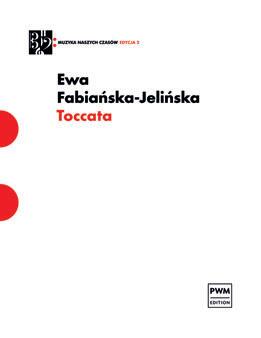
New Issues 2019–2022 26
V Kwartet smyczkowy Czas, który minął String Quartet no. 5 The Time that Has Passed
Bargielski partytura głosy score and parts Ewa Borcz Beskidnicy Beskid Highland Robbers
Zbigniew
Utwory na zespoły trąbkowe na 2, 3 4 trąbki Works for Trumpet Ensemble for 2, 3 and 4 trumpets
Alina Dzięcioł Trio
GORWA MAGDALENA
Anxious Dreams for flute, marimba and cello score and parts PWM 12768
HERTZ MICHAŁ
Fugue for string quartet score and parts PWM 12547
KACA
ALEKSANDRA
Shadow Lines for harp, cello and piano score PWM 12330
Volière II for clarinet, cello and double bass score and parts PWM 12444
KILAR WOJCIECH
Orawa for string quartet score and parts
PWM 12052
KNAPIK EUGENIUSZ
String Quartet No. 2 score and parts PWM 12515
Eugeniusz Knapik
KOLBUSZ
ALEKSANDRA
Passalega for string quartet score and parts PWM 12771
KRUK KAMIL Adolescere for violin, cello, double bass, percussion and accordion score and parts PWM 12446
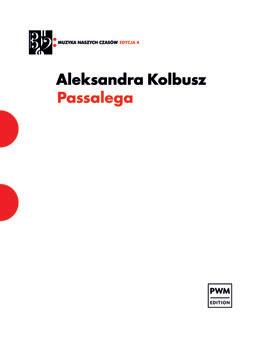
KULENTY HANNA
Tap-Blow-Dance 4 for two bass clarinets, vibraphone and violoncello score and parts PWM 12775
Tap-Blow-Dance 4 lasts around 12 minutes.
The title refers to Kulenty’s earlier work for solo trumpet. The composer sought to obtain a similar character and emphasise the role of rhythm. Besides playing notes in the traditional way, the musicians stamp in a strictly defined manner, which makes it seem as though they are dancing.
Kulenty’s composition is another manifestation of her ‘musique surréalistique’, characterised by a focus on the relations between time and space, with musical and temporal structures overlapping in such a way as to convey various emotional states and gestures.
27 www.pwm.com.pl
Kilar ed. Krzysztof Urbański Orawa na kwartet smyczkowy for string quartet partytura głosy score and parts
Wojciech
Aleksandra Kaca Volière II
Fuga na kwartet smyczkowy Fugue for String Quartet ed. The Violin Consort partytura głosy score and parts ed. The Violin p artytura core p arts
Michał Hertz
EDYCJA 4 Tap–Blow–Dance 4 na dwa klarnety basowe, wibrafon wiolonczelę for two bass clarinets, vibraphone and violoncello partytura głosy score and parts Hanna Kulenty
Kwartet smyczkowy String Quartet no. 2 partytura głosy score and parts
Magdalena Gorwa Niepokoje senne Anxious Dreams
Aleksandra Kaca Smugi cienia Shadow Lines
Kruk
Kamil
Adolescere
KROGULSKI JÓZEF
Quartetto in G major for string quartet score and parts PWM 12764
Quartetto G-dur Quartetto in G major partytura głosy score and parts
typical of Moniuszko and from the stylistic point of view they remain under the influence of Viennese classics (the minuet character of scherzo).
String Quartet No. 2 in F major score and parts PWM 12610
LASOTA DOMINIK
Cala for clarinet, cello, vibraphone, accordion and piano score and parts PWM 12447
…daybreak… for piano, accordion, viola, cello and doubble bass score and parts PWM 12683
MONIUSZKO STANISŁAW
String Quartets, vol. 36 score
PWM 12167
String Quartet No. 1 in D minor score and parts PWM 12464
EDYCJA
NOSKOWSKI
Cala partytura głosy
ZYGMUNT
Dominik Stanisław Moniuszko II Kwartet smyczkowy F-dur String Quartet no. 2 in F major ed. Lutosławski Quartet partytura głosy score and parts Zygmunt Noskowski Wariacje i fuga na temat Viottiego na kwartet smyczkowy Variations and Fugue on a theme of Viotti for String Quartet ed. The Violin Consort
Variations and Fugue on a theme of Viotti for string quartet score and parts PWM 12548
NOWAK ALEKSANDER
String Quartet No. 3 score and parts PWM 12661
Edition included parts of String Quartet No. 1 in D minor prepared for performance by Lutosławski Quartet. This work is juvenile composition completed most propably in autumn 1839. This is characterised by simplicity and tunefulness

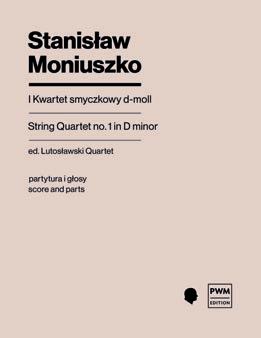
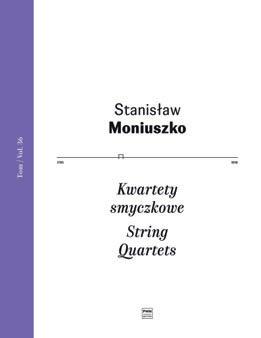
NOWOWIEJSKI
FELIKS
Ellenai op. 32a Symphonic fragment for clarinet and string quintet (expanded) score
PWM 12040
PALESTER ROMAN
score and parts FELIKS NOWOWIEJSKI ELLENAI op. 32a fragment symfoniczny na klarnet solo kwintet smyczkowy (zwiększony) Symphonic fragment for solo clarinet and string quintet (expanded) Sinfonisches Fragment für Klarinette solo und Streichquintett (vergrößert) Seria A tom III Reihe Band III II Kwartet smyczkowy String Quartet no. 2
score and parts ed. Meccore String Quartet
Roman Palester partytura głosy
New Issues 2019–2022 28
Lasota
String Quartet No. 2 score and parts PWM 13001 EDYCJA 2
Józef Władysław Krogulski
Dominik Lasota …ranne zorze… …daybreak…
SARAD MIKOŁAJ
The Lure of the Abyss for clarinet, bassoon and marimba score and parts
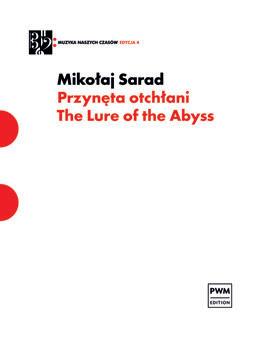
PWM 12772
SPORNIAK FILIP
Contemporary Music for string trio score and parts
PWM 12453
SZALONEK WITOLD
Symphony of Rituals for string quartet score and parts
PWM 12166
VIVALDI ANTONIO
Concerto in G minor RV 578 from L’estro armonico op. 3 for two violins solo, cello, string orchestra and continuo score and parts
PWM 12276
WALACIŃSKI ADAM
Canti notturni for saxophone and cello score and parts
PWM 12494
Cinque episodi for violin, violoncello and piano score and parts PWM 12495
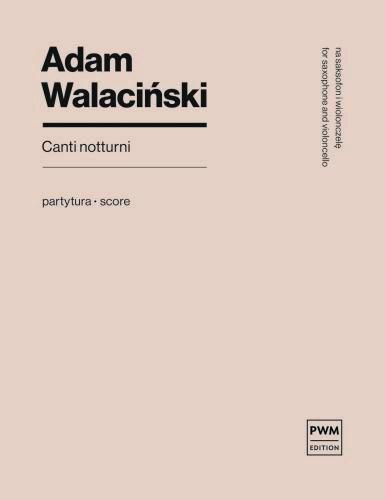
La vida es sueño, Reminiscences from Calderón for flute, guitar and viola score and parts PWM 12497
WIDŁAK WOJCIECH
Horizones for two flutes and piano score and parts PWM 12455
WITKOWSKI BARTOSZ
Im Namen… for reed trio score and parts PWM 12688
Im Namen... should stir associations with Baroque melody. Here, however, intricate counterpoints give way to tonal games: accumulated dissonances or quasi-tonal chorales, which are like a reflection of former simplicity in a crooked mirror. The title – German for ‘In the name of…’ – refers to the musical tetragram hidden in the score, which forms the harmonic basis for one of the sections of the work. In Im Namen..., irony mingles with Baroque emphasis, and the whole work adheres to a spirit of nonchalance and a play with affects.
29 www.pwm.com.pl
Cinque episodi partytura głosy score and parts na skrzypce, wiolonczelę fortepian for violin, violoncello and piano
Bartosz Witkowski Im Namen… Koncert g-moll RV 578 Concerto in G minor RV 578 ed. Antoni Cofalik partytura głosy score and parts na dwoje skrzypiec solo, wiolonczelę, orkiestrę smyczkową basso continuo for two violins solo, cello, string orchestra and continuo
Adam Walaciński
La vida es sueño Reminiscencje z Calderóna Reminiscences from Calderón partytura głosy score and parts na flet, gitarę altówkę for flute, guitar and viola
Antonio Vivaldi
WjihWidłk|WidkidfltiftiHiftfltdi|C PWM12455 Widnokręgi Horizons partytura głosy score and parts na dwa flety fortepian for two flutes and piano Wojciech Widłak Symfonia rytuałów na kwartet smyczkowy Symphony of Rituals for string quartet Witold Szalonek partytura głosy score and parts a or gł osy score an d p art Filip Sporniak Muzyka współczesna
EDYCJA 2 FlSk|MkółkCMf|MkNhCóMfOTPWM12453
Adam Walaciński
Contemporary Music
WYGLĄDACZ KRZYSZTOF
Of Hope for string quartet score and parts
PWM 12889
ZARĘBSKI
JULIUSZ
Piano Quintet in G minor op. 34 score and parts PWM 8427
Piano Quintet op. 34 is no doubt Zarębski’s finest work, written in 1885. Advanced harmony, richness of colour and an enterprising use of rhythm, as well as the full exploitation of the piano and its skilful blending with the strings, combine to make it one of the most remarkable Polish chamber works of the second half of the 19th century.
ORCHESTRA
ŻELEŃSKI WŁADYSŁAW
In the Tatra Mountains, characterictic overture op. 27 score
PWM 2767
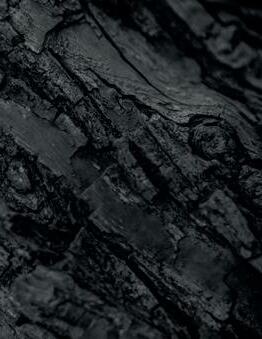
New Issues 2019–2022 30
Lubię myśleć tym niewielkim utworku jak liście do bliskiej osoby: jednym w wyrazie, z drugiej wysoce formie. Jego warstwie dźwiękowej Rihm ze swym bogatym dorobkiem w gatunku kwartetu smyczkowego, nej wolcie lat siedemdziesiątych w obydwu solowych wcieleniach. Żadnych skomplikowanych technik. Tylko garść prostych, serdecznych brzmień. ter to somebody close: on one hand on the other, highly conventionalised three composers: Wolfgang Rihm, Henryk Mikołaj Górecki, post-1970s stylistic watershed, and British musitronic incarnations. a handful of simple, heartfelt sounds. Krzysztof Wyglądacz O nadziei na kwartet smyczkowy Of Hope for string quartet W Tatrach Uwertura charakterystyczna op. 27 In the Tatra Mountains A Character Overture op. 27 Władysław Żeleński partytura score Kwintet fortepianowy g-moll op. 34 Piano Quintet in G minor op. 34 Juliusz Zarębski partytura głosy score and parts
Vocal-instrumental music
CYRYL

Missa in C a canto, alto, tenore, basso, due violini, viola, due flauti, due clarinetti, due corni, due clarini, timpani, fagotto e organo score PWM 11611
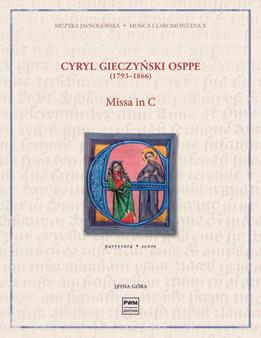
KUPCZAK SŁAWOMIR
Diva for soprano and string quartet score and parts PWM 12462
LUTOSŁAWSKI WITOLD
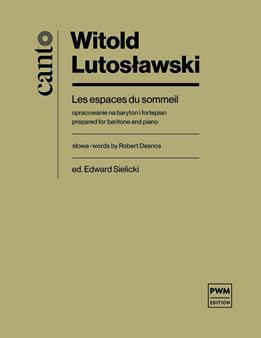
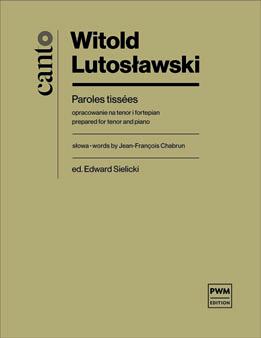
Paroles tissées for tenor and piano PWM 12179
Les espaces du sommeil for baritone and piano PWM 12178
MONIUSZKO STANISŁAW
A Singer in the Foreign Land, a selection of songs in historical translations for voice and piano PWM 12435
Songs to words by A. Mickiewicz for voice and piano PWM 12345
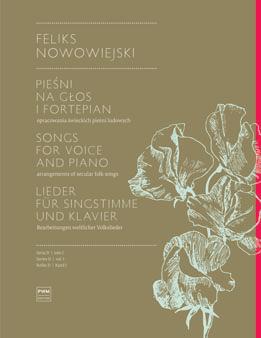
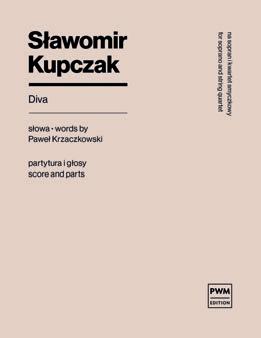
The Most Beautiful Songs, a selection for voice and piano PWM 12302
NOWOWIEJSKI FELIKS
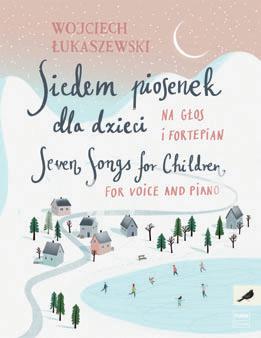
Songs for Voice and Piano, arrangements of secular folk songs, series D vol. 1 PWM 12097
SIKORA ELŻBIETA
Lamento from Opera Madame Curie for soprano and piano PWM 12324
ŁUKASZEWSKI WOJCIECH
Seven Songs for children for voice and piano PWM 12365
31 www.pwm.com.pl
Śpiewak w obcej stronie A Singer in a Foreign Land
Stanisław Moniuszko Pieśni do słów Adama Mickiewicza Songs to Words by Adam Mickiewicz Lament z opery Madame Curie na sopran fortepian Lamento from the opera Madame Curie for soprano and piano
Stanisław Moniuszko
Elżbieta Sikora
GIECZYŃSKI
ŚWIDER JÓZEF
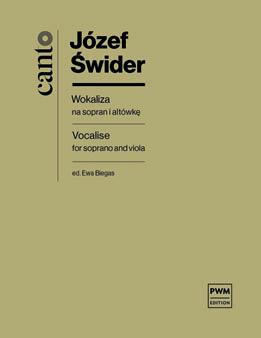
Vocalise for soprano and viola
PWM 12350
TWARDOWSKI ROMUALD
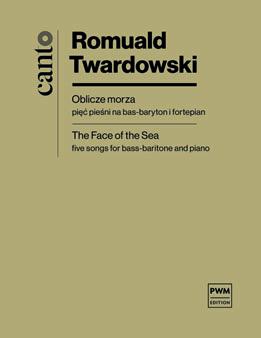
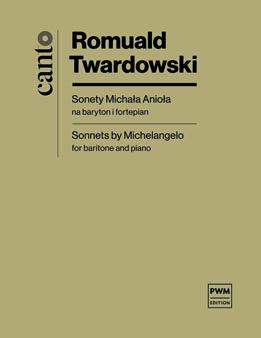
Canticum Canticorum for soprano and piano
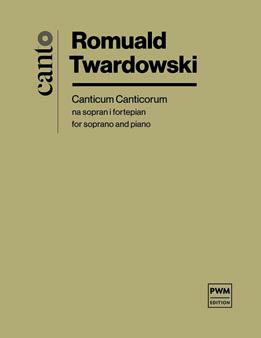
PWM 12336
The Face of the Sea, five songs for bas-baritone and piano PWM 12558
From Viliya, three songs for bas-baritone and piano
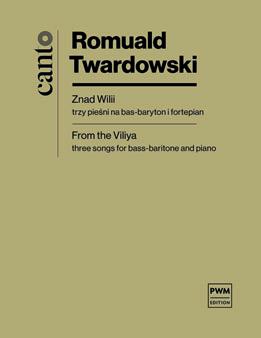
PWM 12594
Sonnets by Michelangelo for baritone and piano
PWM 12593
Three Farewell Sonnets for bas-baritone and piano PWM 12592
Three Songs for baritone and piano, PWM 12591
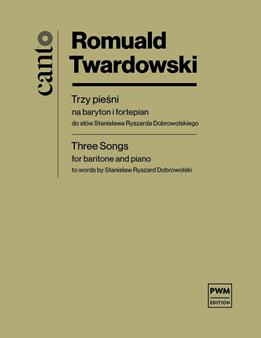
New Issues 2019–2022 32
Trzy sonety pożegnalne na bas-baryton fortepian Trois sonnets d’adieu pour basse-baryton et piano Three Farewell Sonnets for bass-baritone and piano
Romuald Twardowski
Choral music
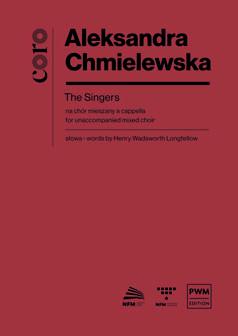
CHMIELEWSKA ALEKSANDRA
The Singers for unaccompanied mixed choir PWM 12627
GODZIEMBA-TRYTEK SZYMON
Sonnet VIII for unaccompanied mixed choir PWM 12629
DANEL KATARZYNA
I Don’t Sing… for mixed choir and body percussion PWM 12670
FALKOWSKA
ZUZANNA
Singin’ for unaccompanied mixed choir PWM 12666
FARCINKIEWICZ
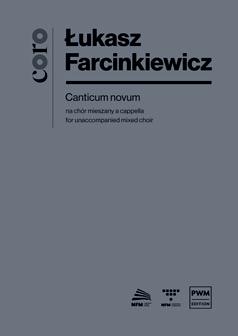
ŁUKASZ
Canticum novum for unaccompanied mixed choir PWM 12652
Quem diliget anima mea for mixed choir and piano PWM 12653
KNITTEL KRZYSZTOF
Out of the Depth Have I Cried unto thee, o Lord, Psalms for mixed choir and tape PWM 12430 De profundis clamavi ad Te, Domine, Psalms for mixed choir and tape PWM 12091
Szymon Godziemba-Trytek
KRUTUL JAN
Let Your Singing
Transcend the Borders! for mixed choir and body percussion PWM 12735
KULENTY HANNA
There is Nothing That can Happen for female vocal ensemble PWM 12724
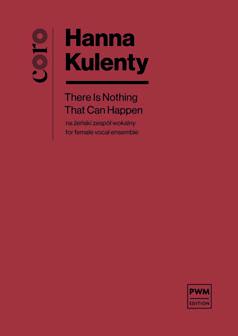
33 www.pwm.com.pl
Krzysztof Knittel Z głębokości wołam do Ciebie, Panie Psalmy na chór mieszany taśmę Out of the depths have cried unto thee, o Lord Psalms for mixed choir and tape Krzysztof Knittel De profundis clamavi ad te, Domine Psalmy na chór mieszany taśmę Psalms for mixed choir and tape Jan Krutul Let Your Singing Transcend the Borders! na chór mieszany body percussion for mixed choir and body percussion Zuzanna Falkowska Singin’ na chór mieszany cappella for unaccompanied mixed choir Katarzyna Danel Don’t Sing… na chór mieszany body percussion for mix choir and body percussion Łukasz Farcinkiewicz Quem diligit anima mea na chór mieszany fortepian for mixed choir and piano
Sonnet VIII na chór mieszany a cappella for unaccompanied mixed choir
KUPCZAK SŁAWOMIR
Glosolalia for 24-part mixed choir PWM 12552
ŁUKASZEWSKI PAWEŁ
Corpus Christi hymnus for unnaccompanied mixed choir PWM 12795
Corpus Christi responsoria for unaccompanied mixed choir PWM 12501
Sub tuum præsidium for unaccompanied mixed choir PWM 12796
Missa Sancti Papæ
Ioannis Pauli Secundi Magni for unaccompanied mixed choir PWM 12776
Paweł Paweł Łukaszewski Missa Sancti Papæ Ioannis Pauli Secundi Magni na chór mieszany a cappella for unaccompanied mixed choir
MALEC MICHAŁ
I Heard You Singing for solo soprano and unaccompanied mixed choir PWM 12655
Paweł Łukaszewski Sub tuum præsidium na chór mieszany a cappella for unaccompanied mixed choir Michał Malec I Heard You Singing na sopran solo chór mieszany cappella for solo soprano and unaccompanied mixed choir
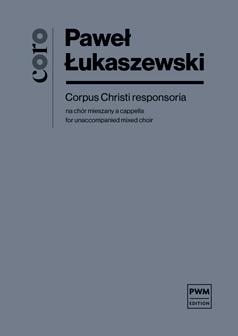

MONIUSZKO
STANISŁAW
One Voice in Chorus, b. 1, selection of works arranged for children’s or female choir and string orchestra score PWM 12395
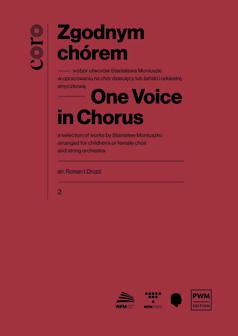
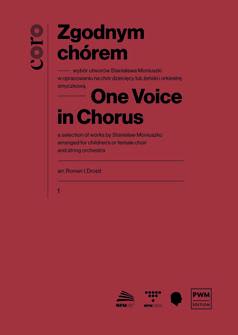
One Voice in Chorus, b. 2, selection of works arranged for children’s or female choir and string orchestra score PWM 12396
One Voice in Chorus, b. 1, selection of works arranged for children’s or female choir and piano score PWM 12362
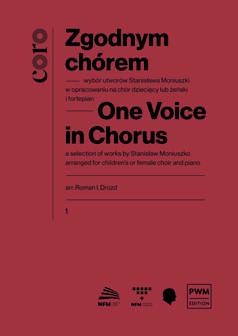
New Issues 2019–2022 34
Popule meus for unaccompanied mixed choir PWM 12502 Łukaszewski Corpus Christi hymnus na chór mieszany a cappella for unaccompanied mixed choir słowa words by Jerzy Wojtczak-Szyszkowski Paweł Łukaszewski Popule meus na chór mieszany cappella for unaccompanied mixed choir
One Voice in Chorus, b. 2, selection of works arranged for children’s or female choir and piano score
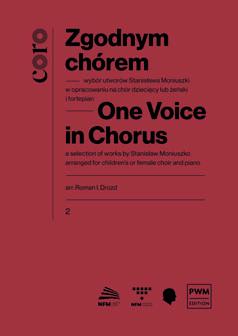
PWM 12412
RACZYŃSKI MAREK
I’d Like to Sing to You for unaccompanied mixed choir PWM 12630
ROCŁAWSKA-MUSIAŁCZYK ANNA …the touch of a moment… for unaccompanied mixed choir PWM 12656
SYKULSKI JACEK
Christmas Carols for unaccompanied mixed choir PWM 12364
TWARDOWSKI ROMUALD
Sacrum · Profanum for mixed choir PWM 12890
— URBANIAK ŁUKASZ
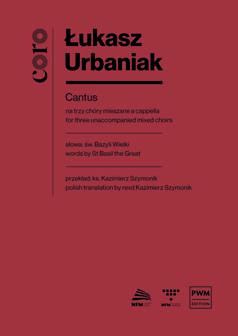
Cantus for three unaccompanied mixed choir PWM 12631
WIDŁAK WOJCIECH
Misericordias Domini for 6-part unaccompanied mixed choir PWM 12454
ZIÓŁKOWSKI MICHAŁ
It Goes to the Fields, It Goes to the Forests… for unaccompanied mixed choir PWM 12657
SZYMAŃSKI
SEBASTIAN
Sing! for unaccompanied mixed choir PWM 12671
35 www.pwm.com.pl
Marek Raczyński MarekRaczyński|Chciałbymzaśpiewaćcinachórmieszanyacappella dLiketoSingtoYouforunaccompaniedmixedchoir|CoroPWM12630 Chciałbym zaśpiewać ci na chór mieszany a cappella I’d Like to Sing to You for unaccompanied mixed choir słowa words by Maria Pawlikowska-Jasnorzewska Anna Rocławska-Musiałczyk …dotknięciem chwili… na chór mieszany a cappella ...the touch of a moment... for unaccompanied mixed choir Musiałczyk|dotknięciemchwilinachórmieszanyacappella thetouchofamomentforunaccompaniedmixedchoir|CoroPWM12656 Kolędy Christmas Carols na chór mieszany a cappella for unaccompanied mixed choir arr. Jacek Sykulski Wojciech Widłak Misericordias Domini na 6-głosowy chór mieszany a cappella for unaccompanied 6-part mixed choir Sebastian Szymański Śpiewajcie na chór mieszany a cappella Sing! for unaccompanied mixed choir
Sacrum Profanum na chór mieszany a cappella for unaccompanied mixed choir Michał Ziółkowski Idzie na pola, idzie na bory… na chór mieszany cappella It Goes to the Fields, It Goes to the Forests… for unaccompanied mixed choir MichałZiółkoski|IdienapolaidienabornachórmiesanacappellaItGoestotheFieldsItGoestotheForestsfornaccompaniedmiedchoir|CoroPWM1265
Romuald Twardowski
Stage worksBooks

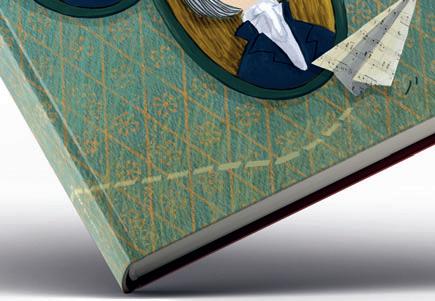

NOWOWIEJSKI
FELIKS



Legend of the Baltic, opera in 3 acts, series F vol. 1 score


PWM 12038
Legend of the Baltic, opera in 3 acts, series F vol. 1 a piano reduction PWM 12041
STEFANI JAN
The Supposed Miracle or Cracovians and Highlanders, vol. 1 score
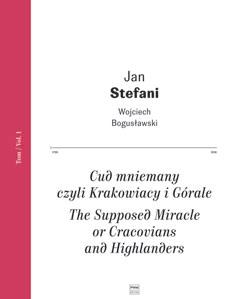
PWM 12062
GWIZDALANKA
DANUTA

One Hundred Years of Polish Music History PWM 20775
Danuta Gwizdalanka’s One Hundred Years of Polish Music History is a fascinating journey through the last hundred years in Polish musical culture. In this book, written in a vivid and highly expressive style, the author highlights the most important historical events that influenced the work of Polish composers from 1918 to 2018. She leads the reader through the meanders of aesthetic currents, points out stylistic contexts and discusses compositions, evoking often forgotten facts and anecdotes. She both peruses the past and looks to the musical future. And she begins her account with the piano, an instrument inextricably associated with Poland...
HUZAR-CZUB
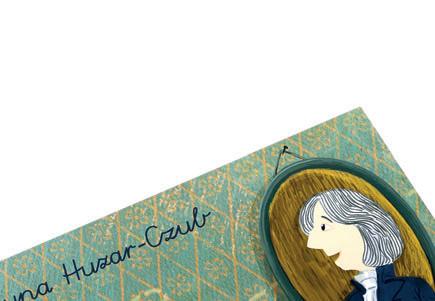
Impro Frederic PWM 20923


KATARZYNA
Our book show that Frederic’s talents were both acting and music, of course. You know Chopin the serious composer, now discover
the serious now discover how funny he was!
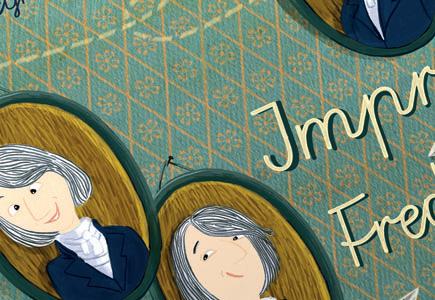
New Issues 2019–2022 36
FELIKS NOWOWIEJSKI LEGENDA BAŁTYKU opera w trzech aktach, op. 28 LEGEND OF THE BALTIC opera in three acts, op. 28 BALTISCHE LEGENDE Reihe Band
2
“THE MOST...”
series presents the most popular, most beautiful and famous pieces of famous composers. These pieces for piano or a solo instrument with piano accompaniment are of various difficulty levels, therefore it can be used at all levels of education.
The aim of the edition is to disseminate the music of famous composers in the widest circles of young virtuosos, both professionals and amateurs.
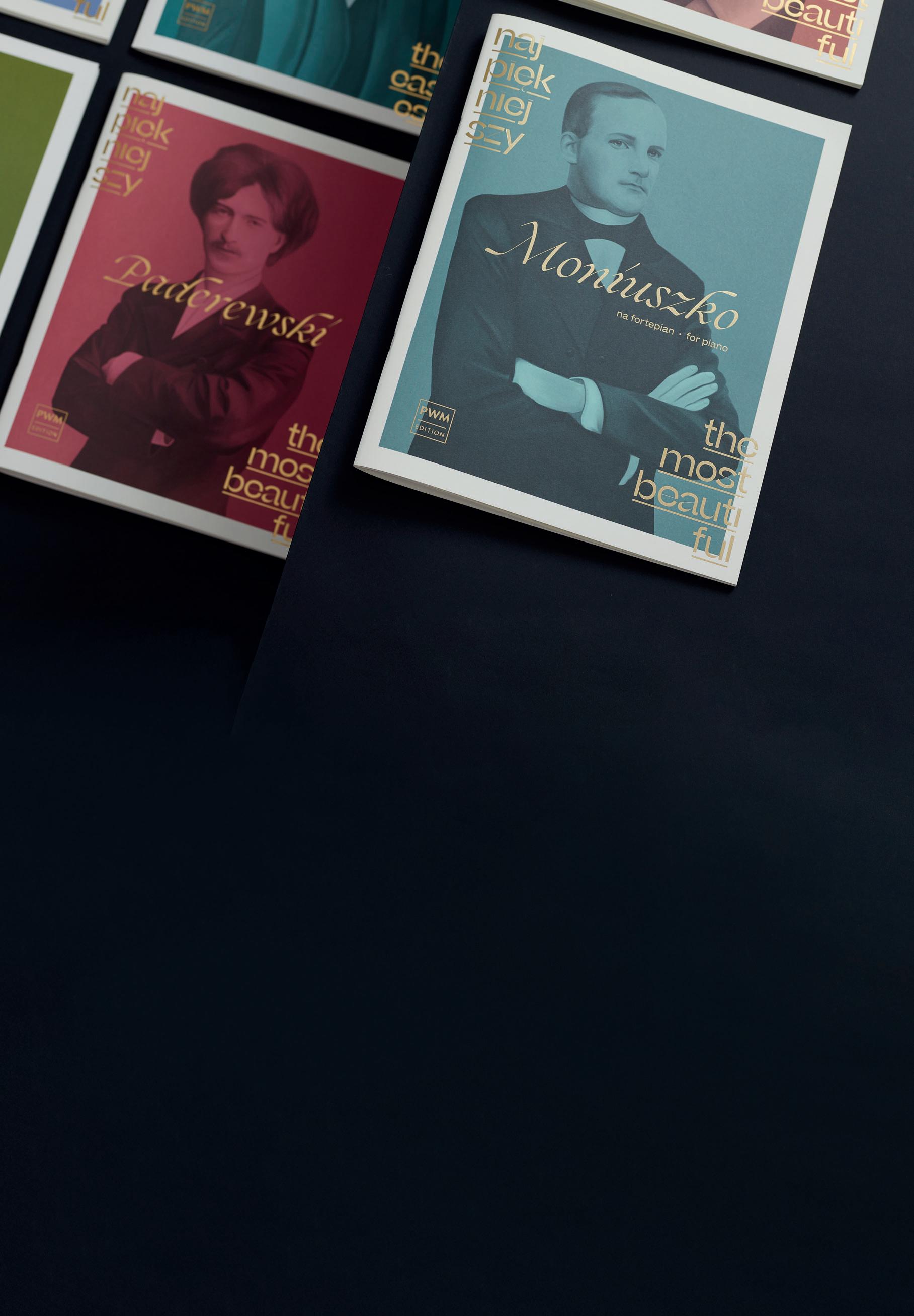
Series “The Most…”


BACEWICZ GRAŻYNA
The Most Beautiful Bacewicz for violin and piano PWM 10321
CHOPIN FRYDERYK
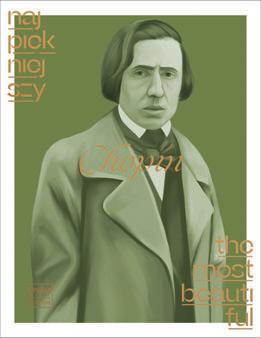
The Most Beautiful Chopin for piano PWM 9889
The Easiest Chopin for piano PWM 9995
LUTOSŁAWSKI
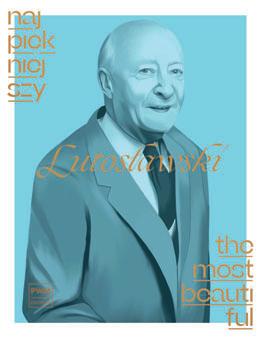
WITOLD
The Most Beautiful Lutosławski for piano PWM 10226
MOZART WOLFGANG AMADEUS
The Most Beautiful Mozart for piano PWM 10314
PADEREWSKI
IGNACY JAN
The Most Beautiful Paderewski for piano PWM 10175
SZYMANOWSKI KAROL
The Most Beautiful Szymanowski for piano PWM 10134
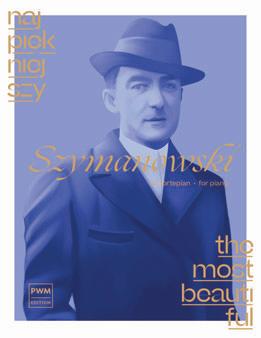

WIENIAWSKI
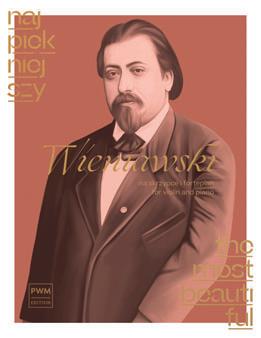
HENRYK
The Most Beautiful Wieniawski for violin and piano PWM 9997
MONIUSZKO
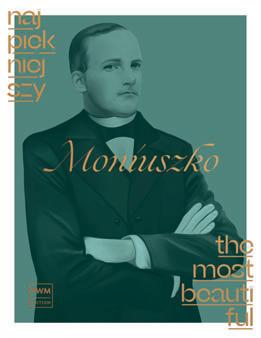
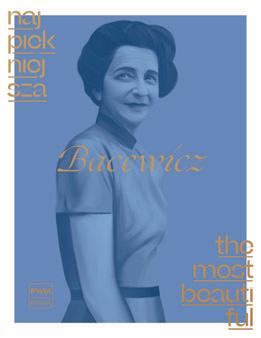
STANISŁAW
The Most Beautiful Moniuszko for piano PWM 10431
New Issues 2019–2022 38


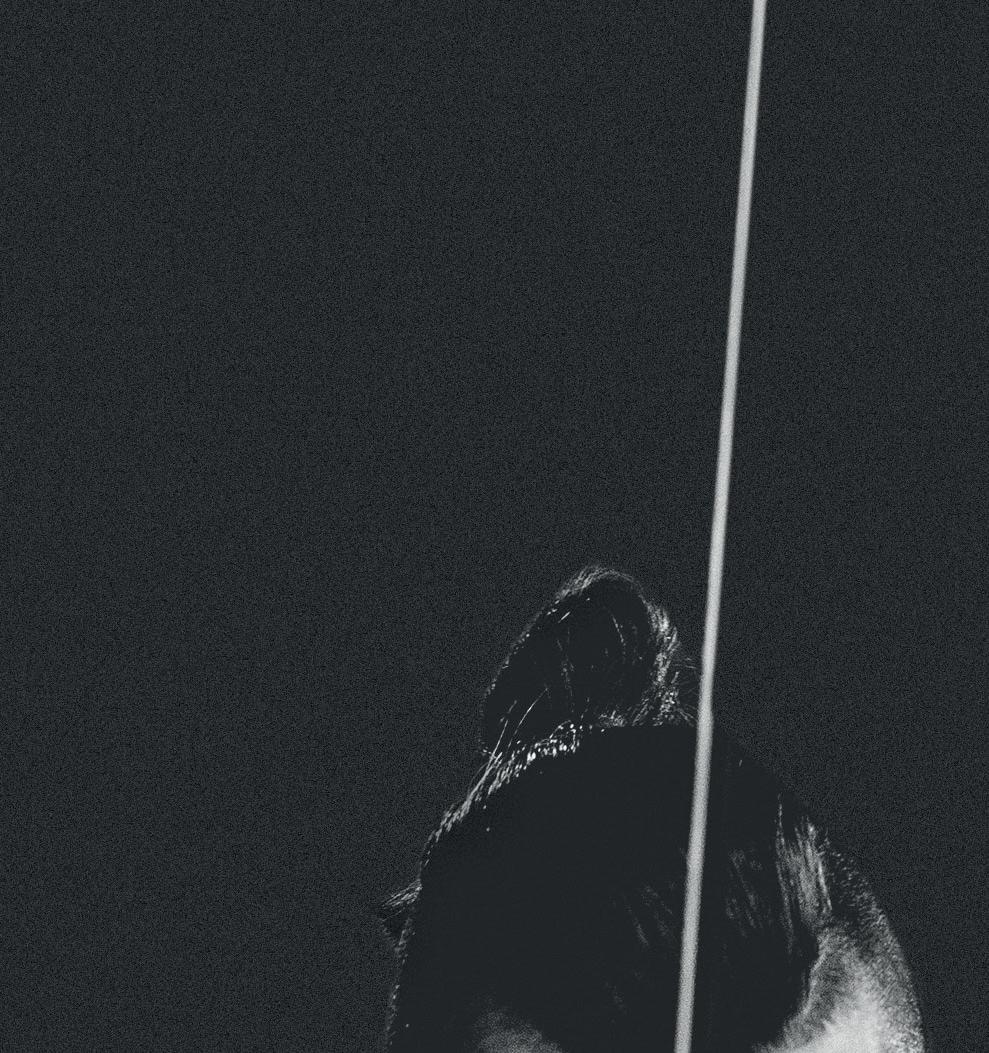


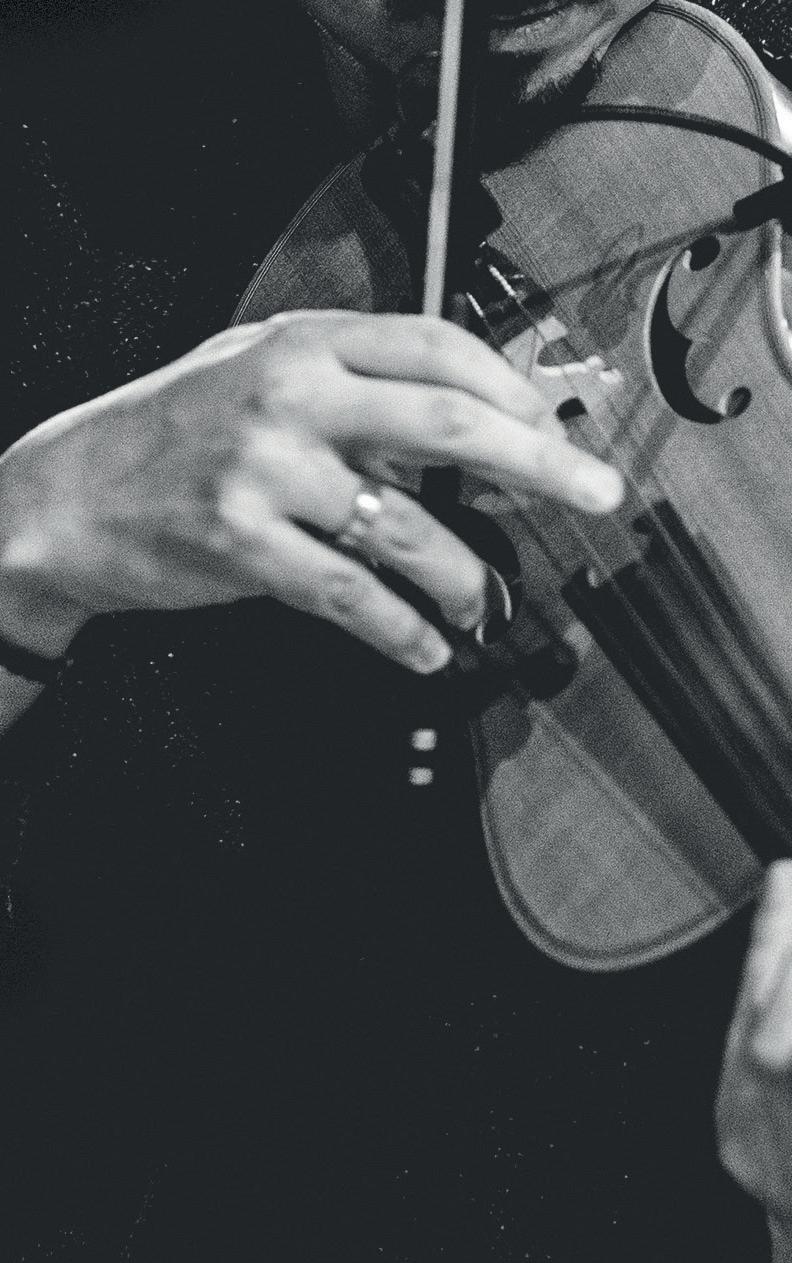
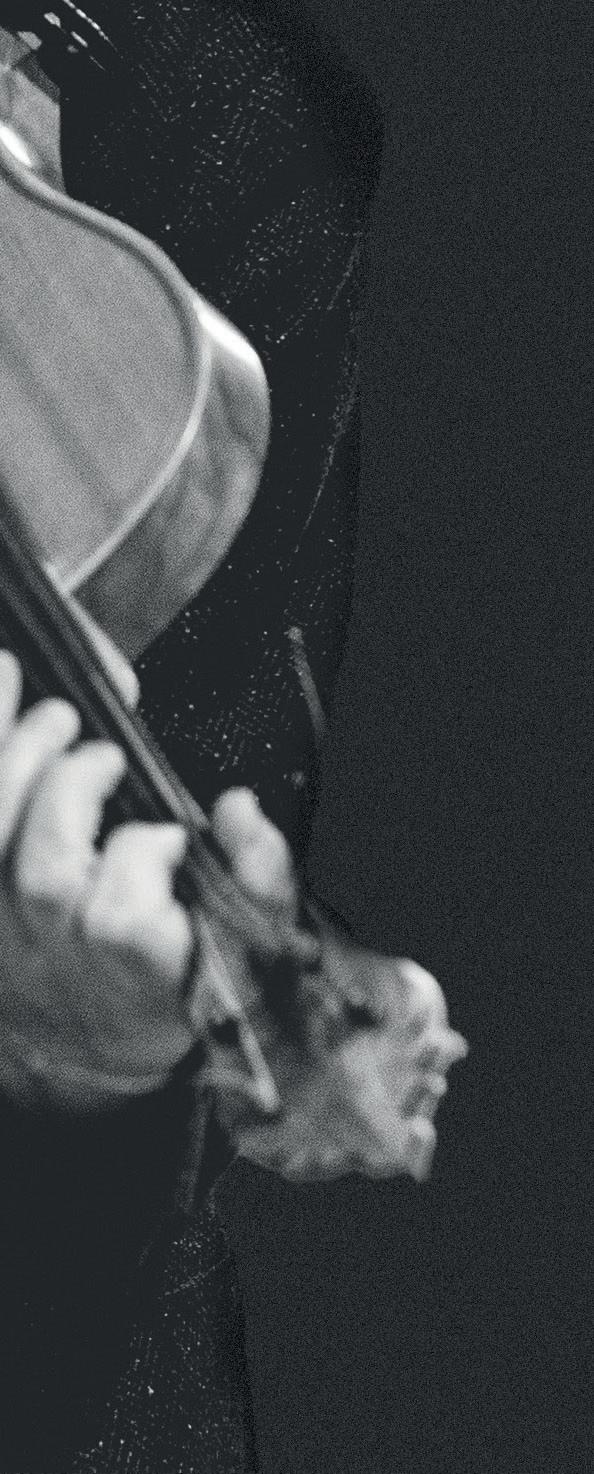
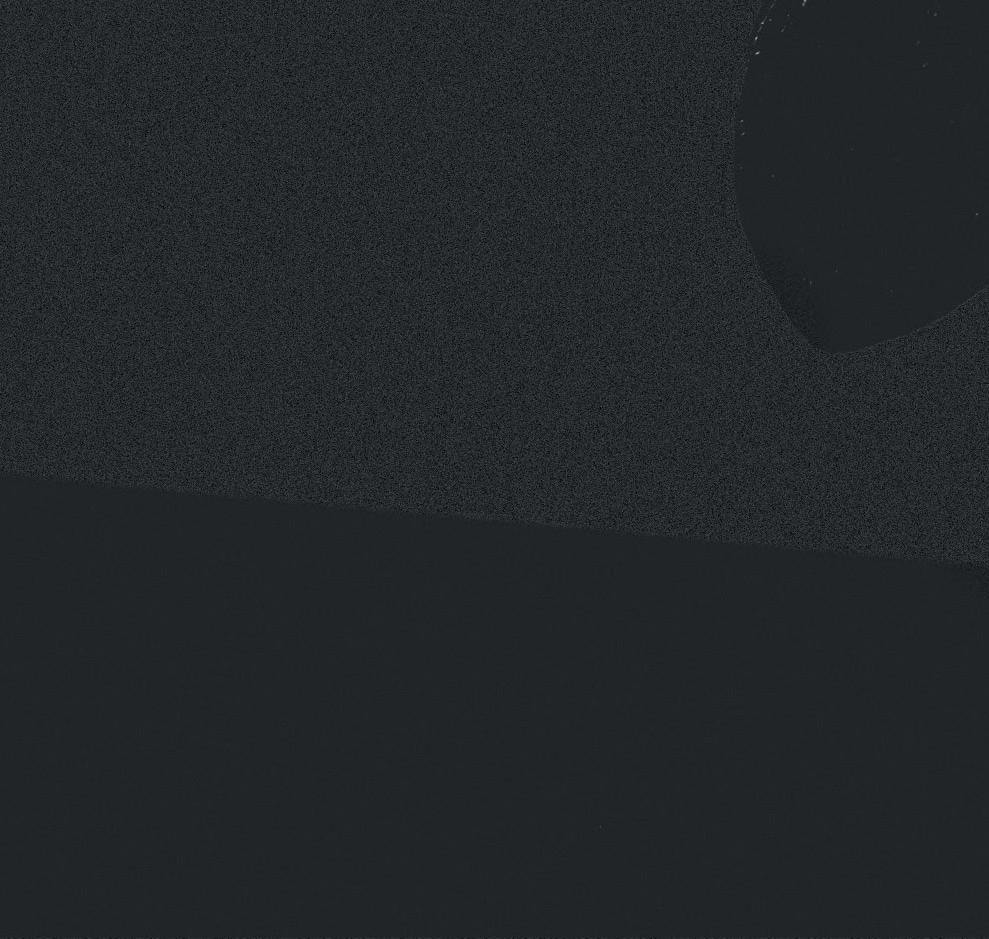

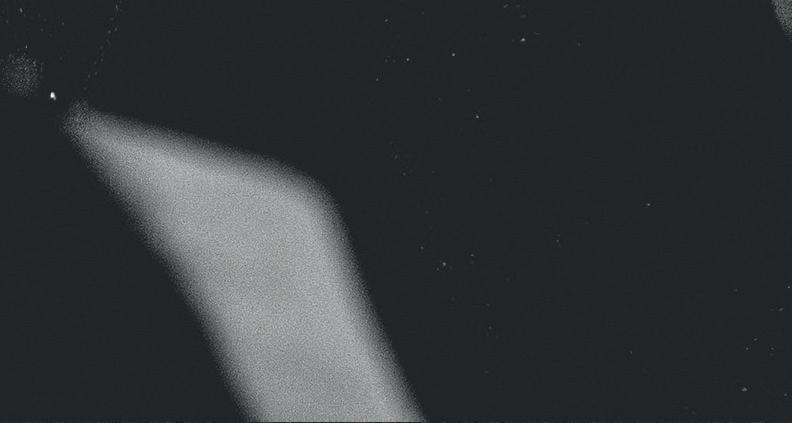
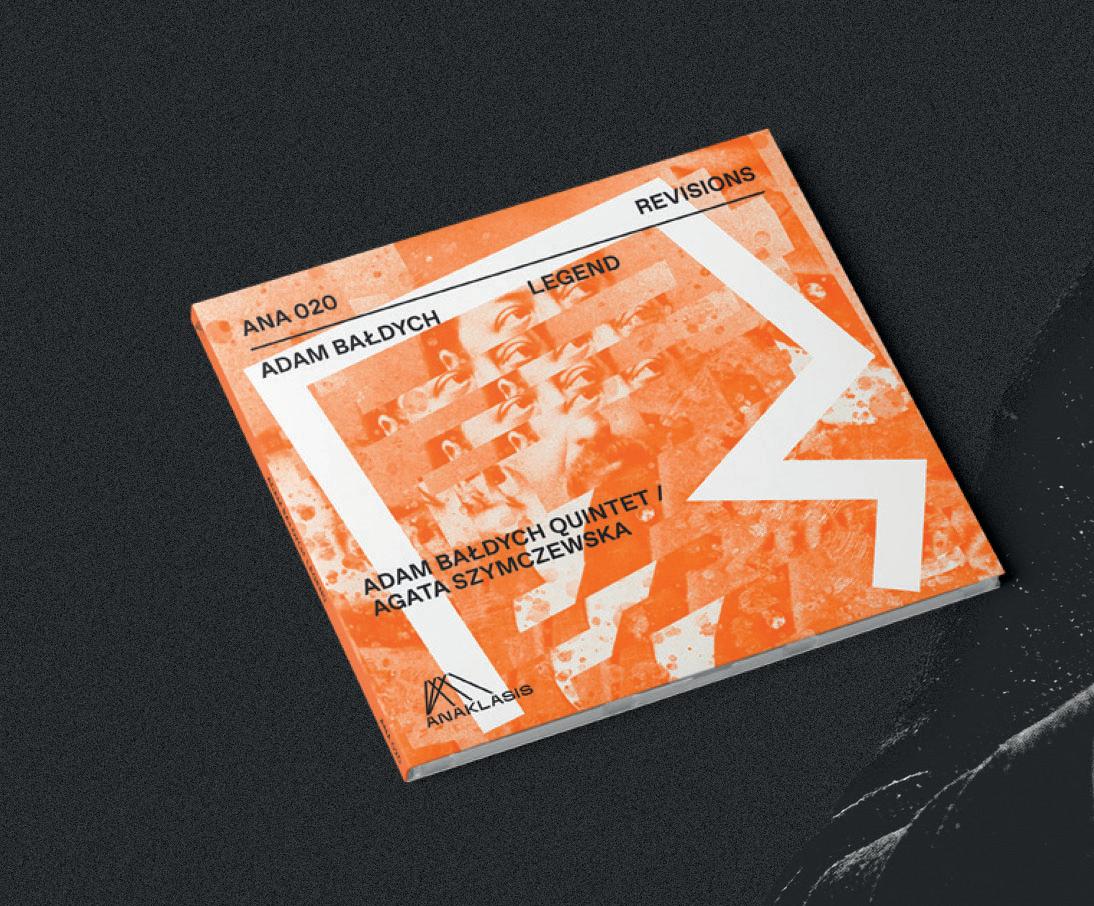

A CONTEMPORARY EXPRESSION OF VIRTUOSITY WWW.ANAKLASIS.PLWWW.PWM.COM.PL PUBLISHERPATRONAGE Realizedwithfundsof MinisterofCulture andNationalHeritage
